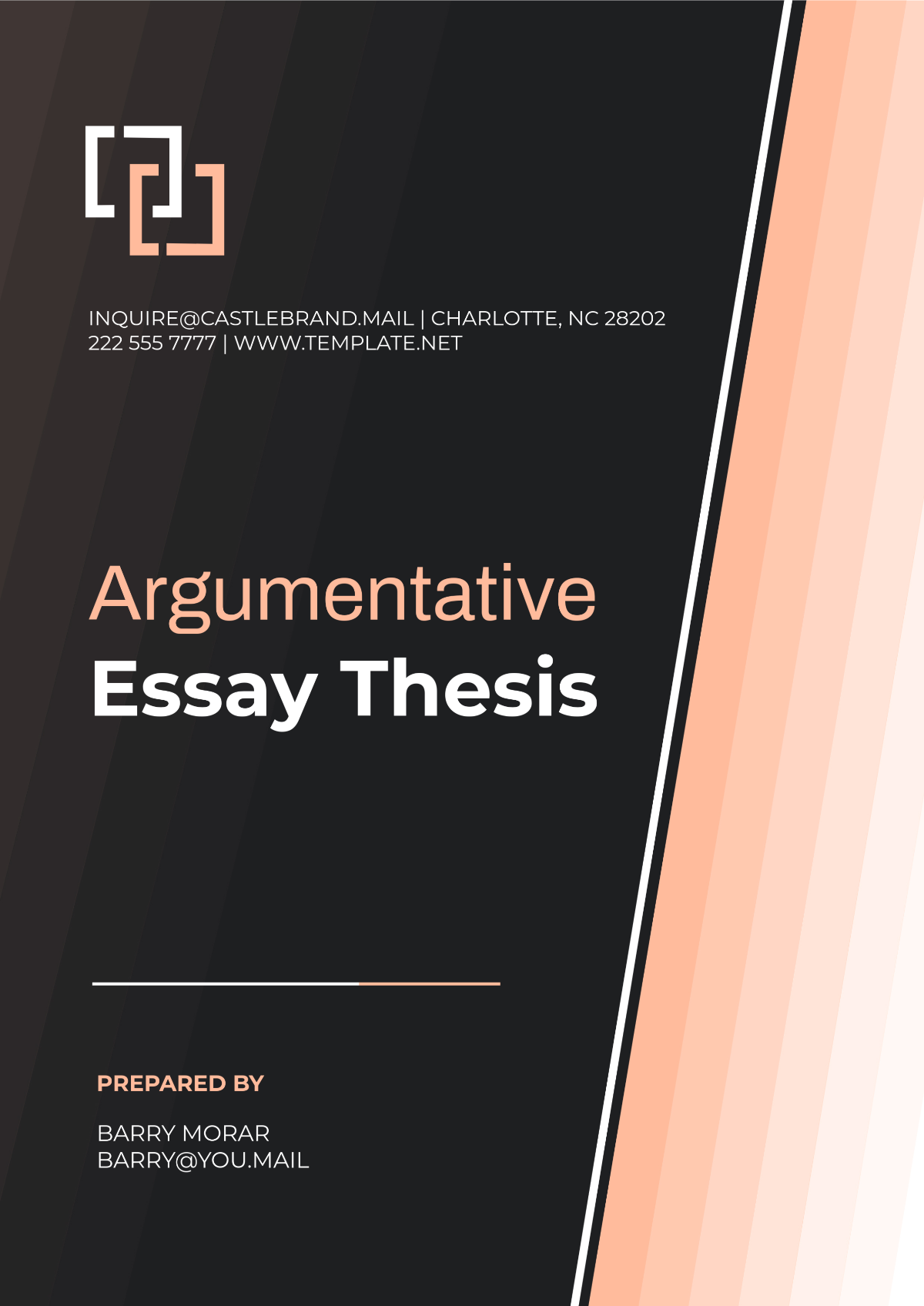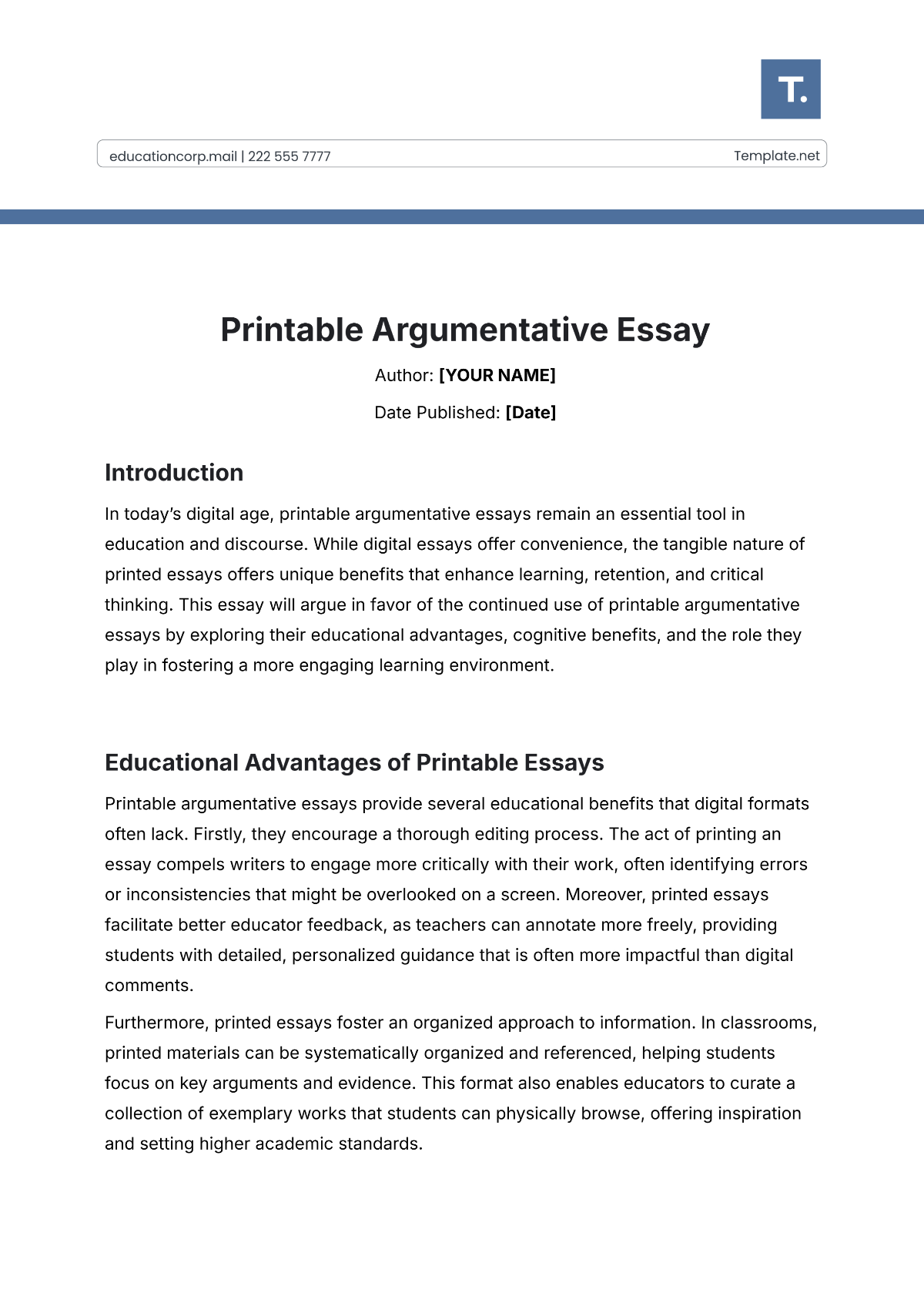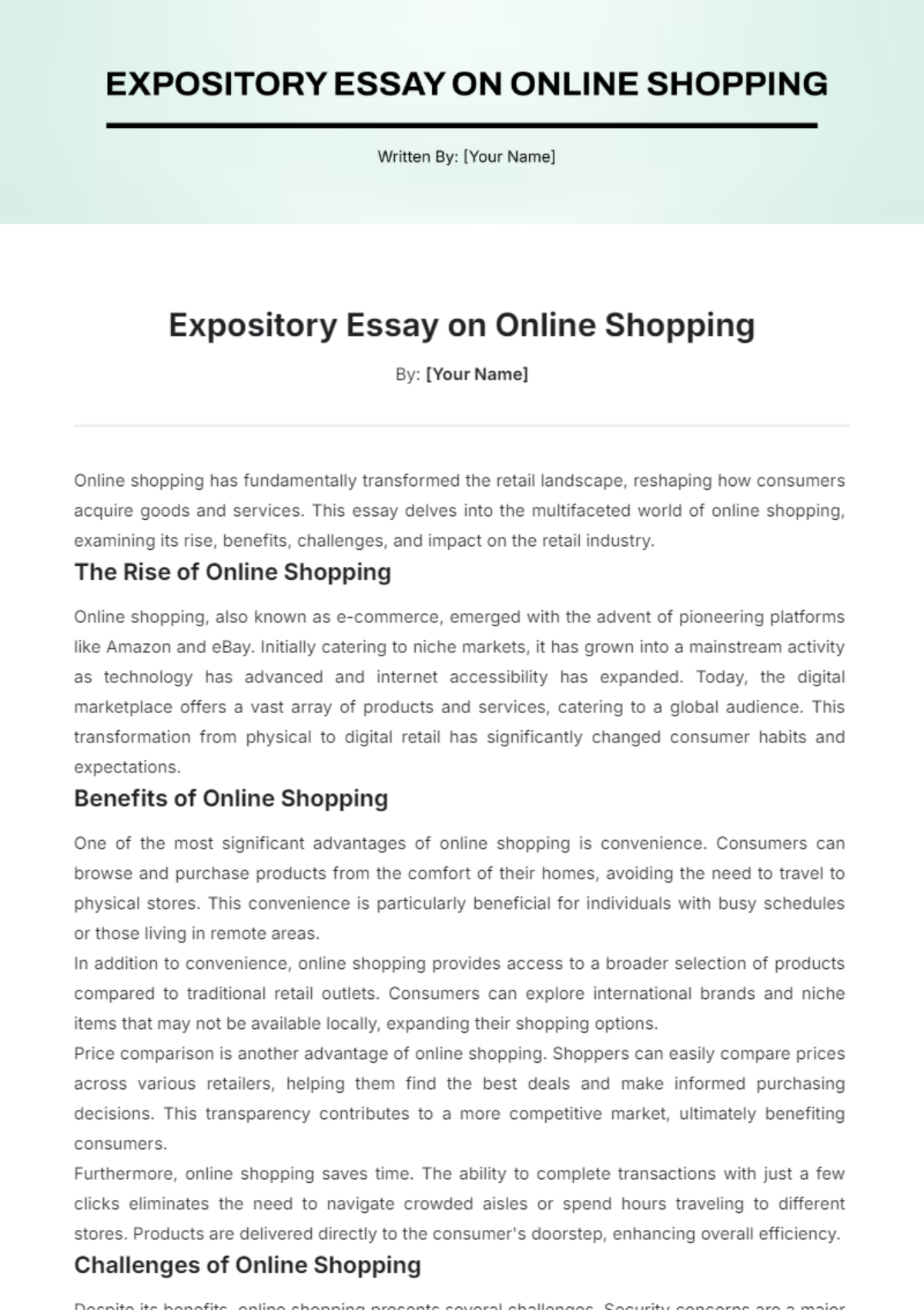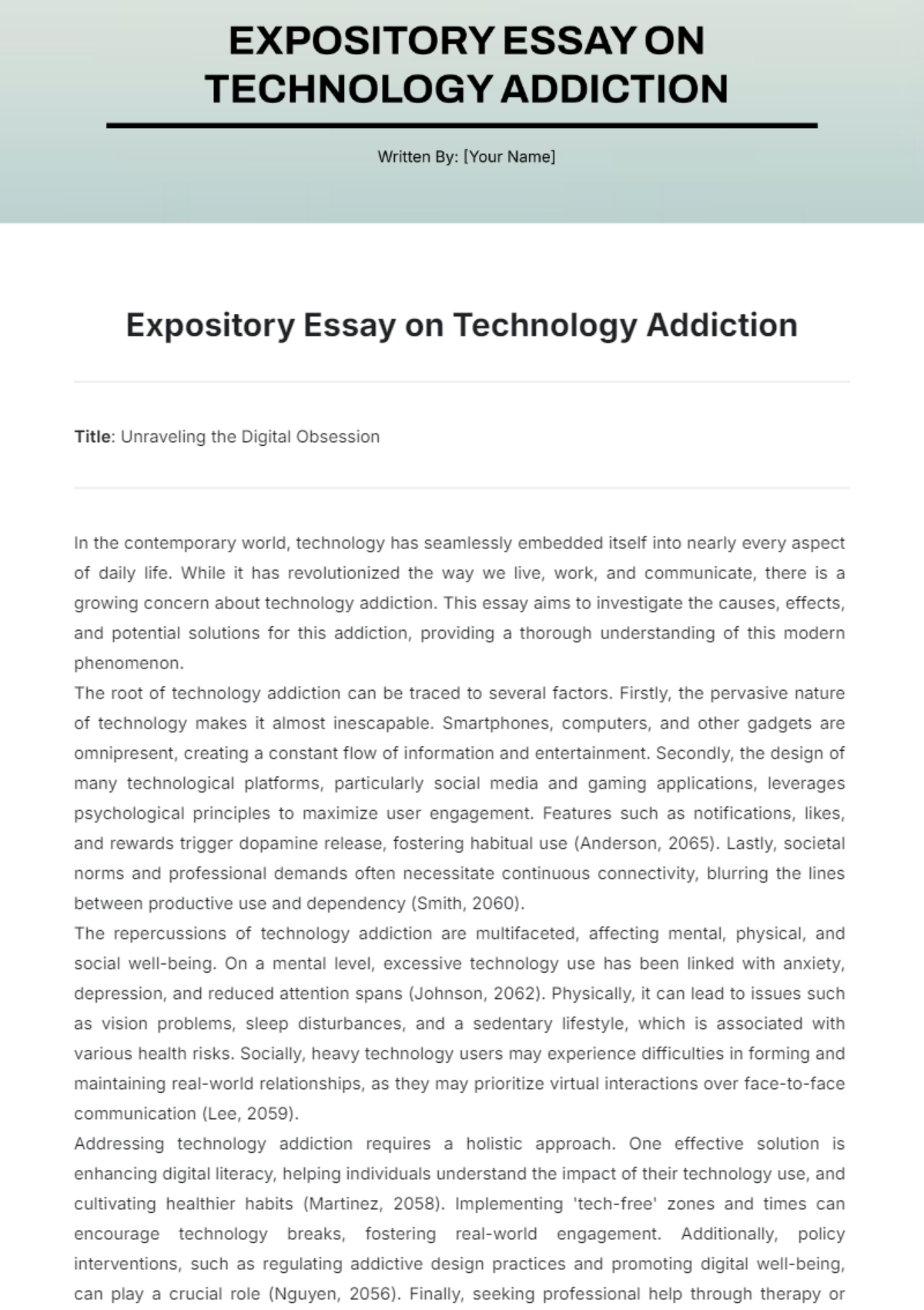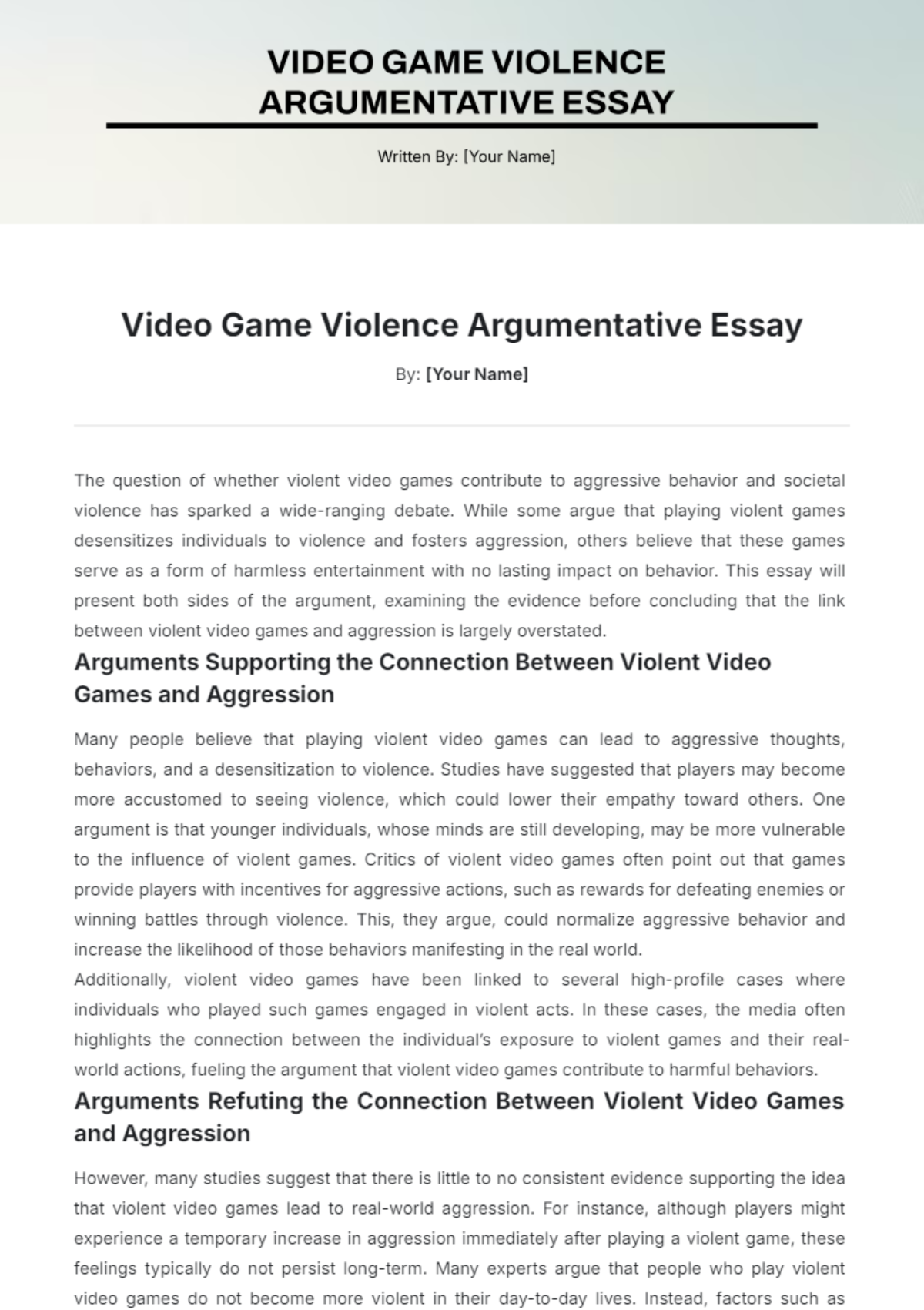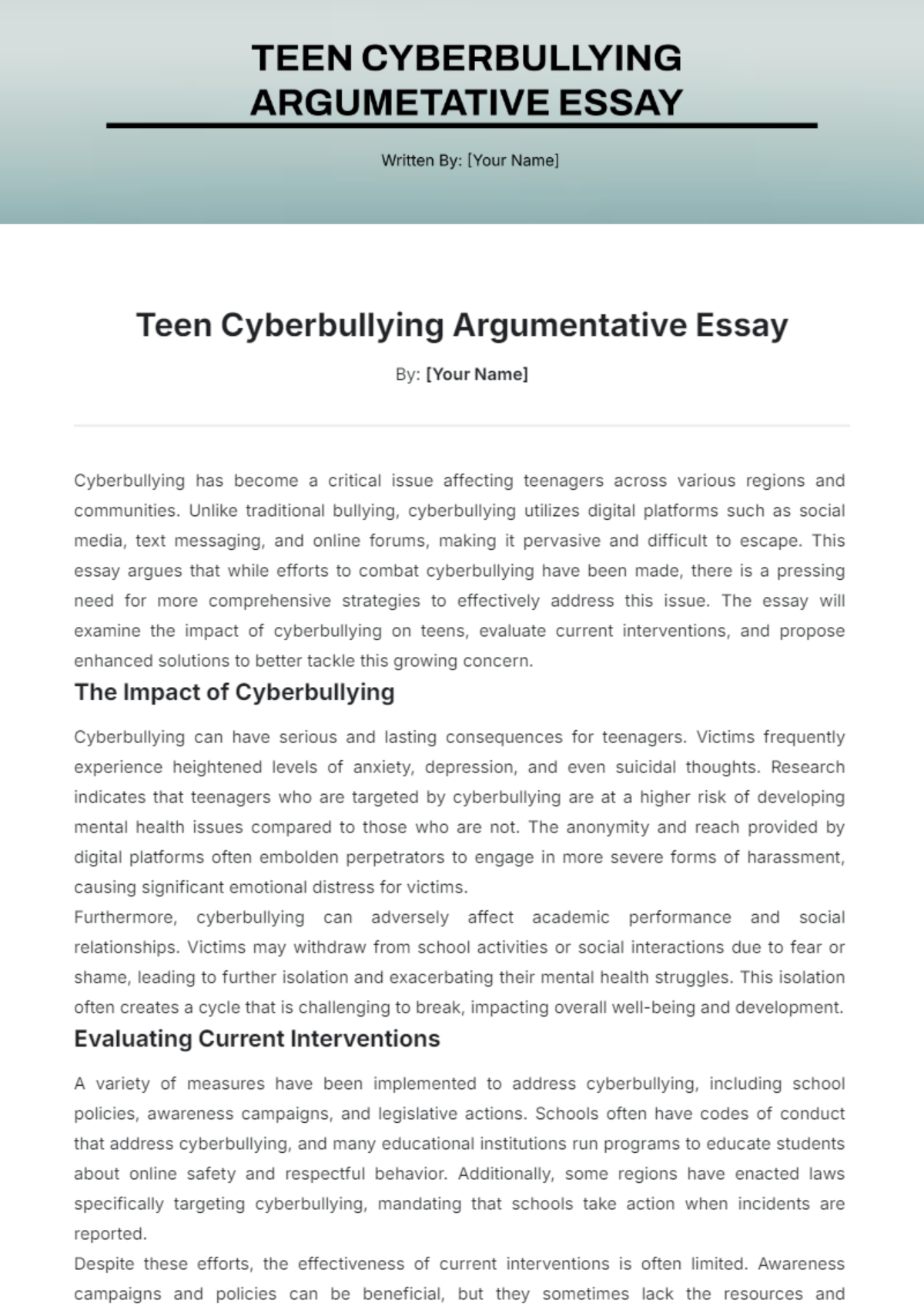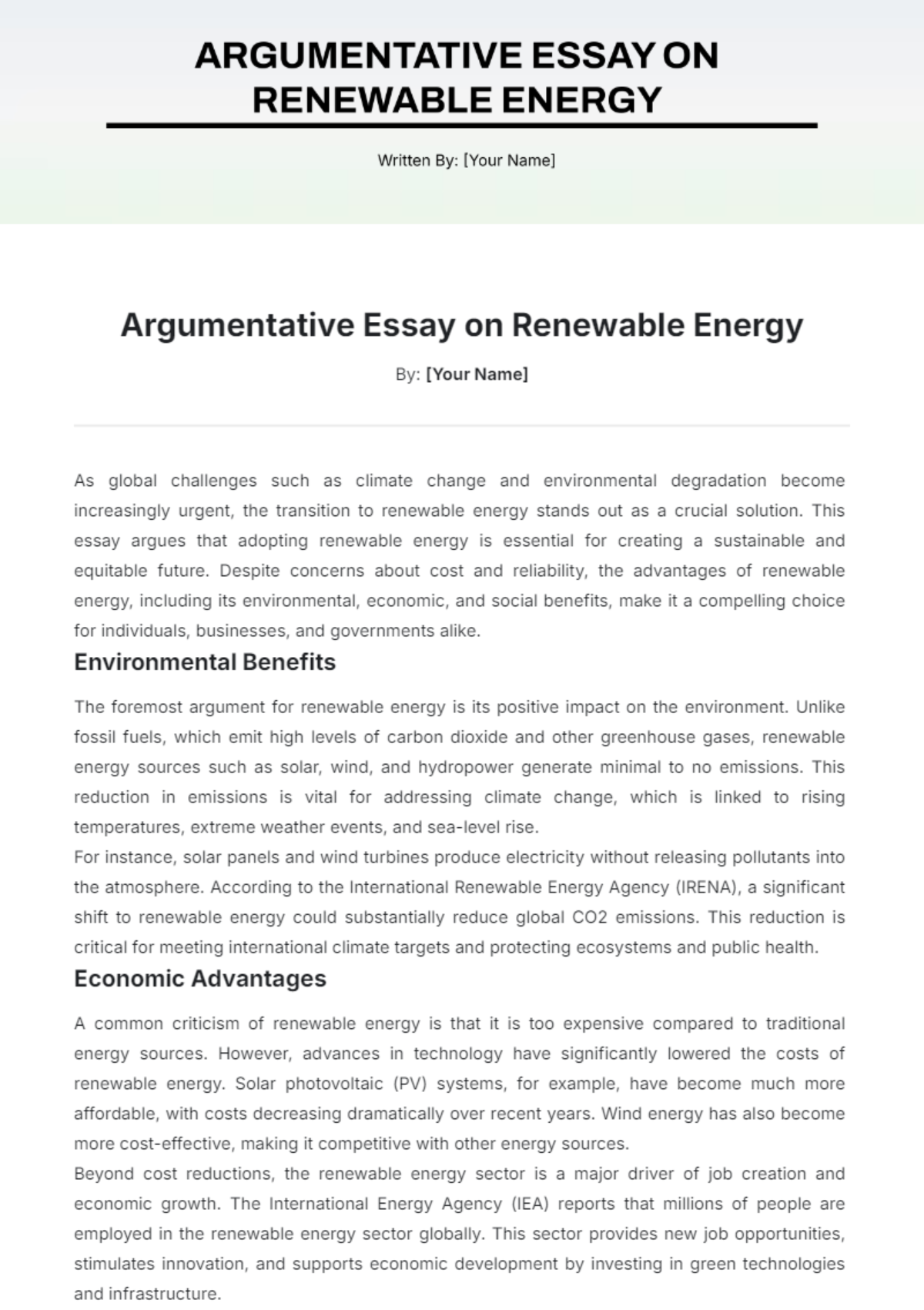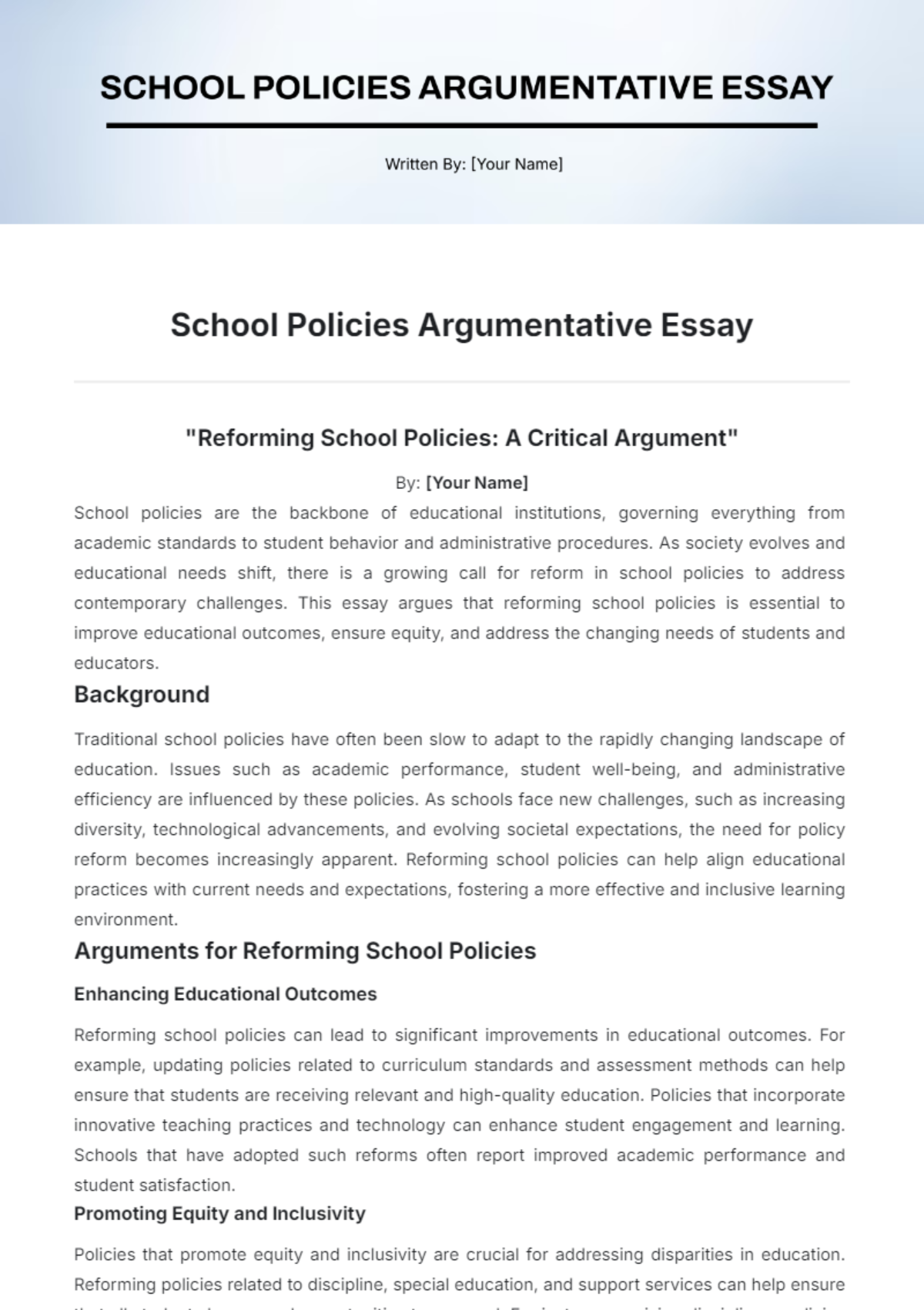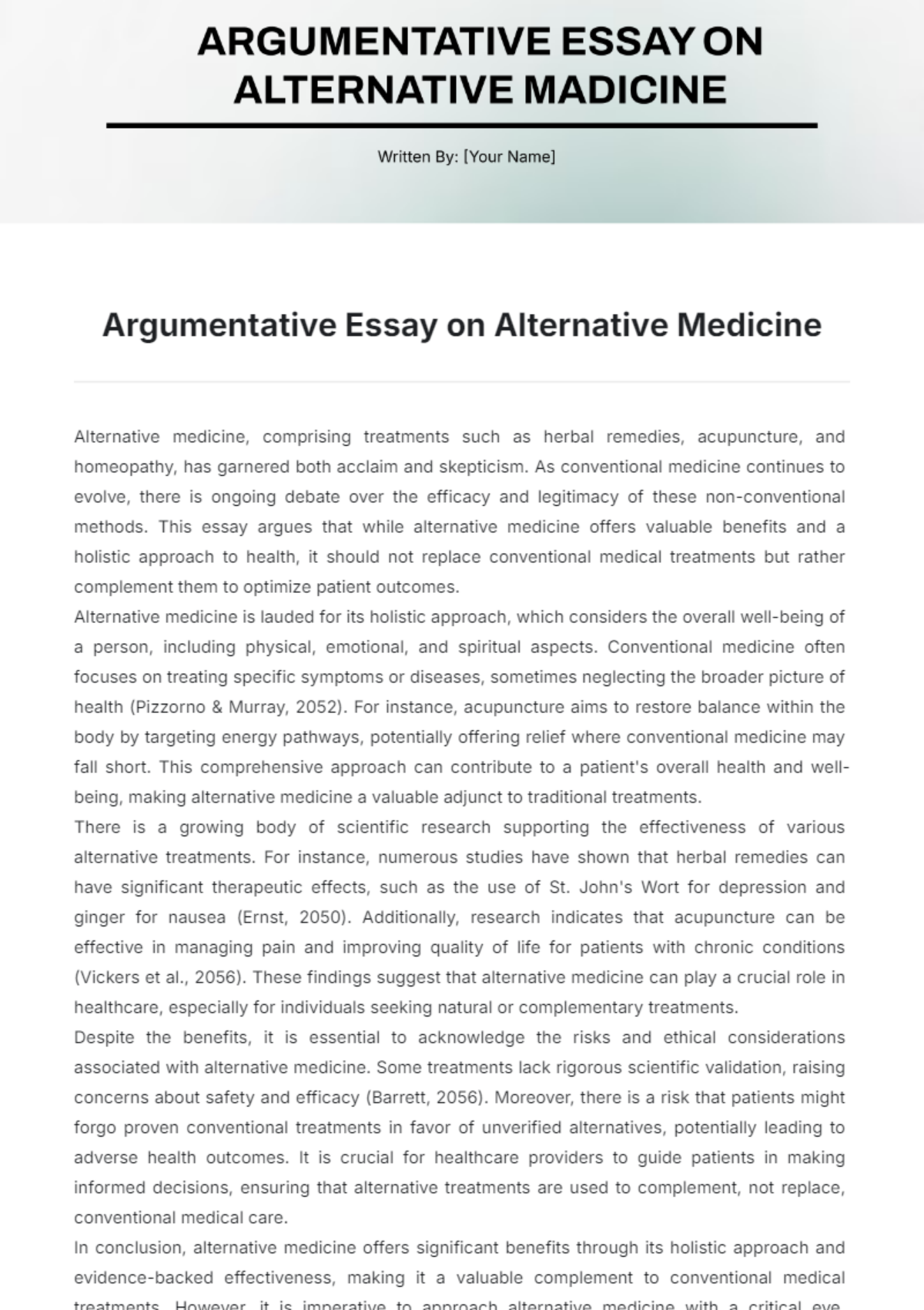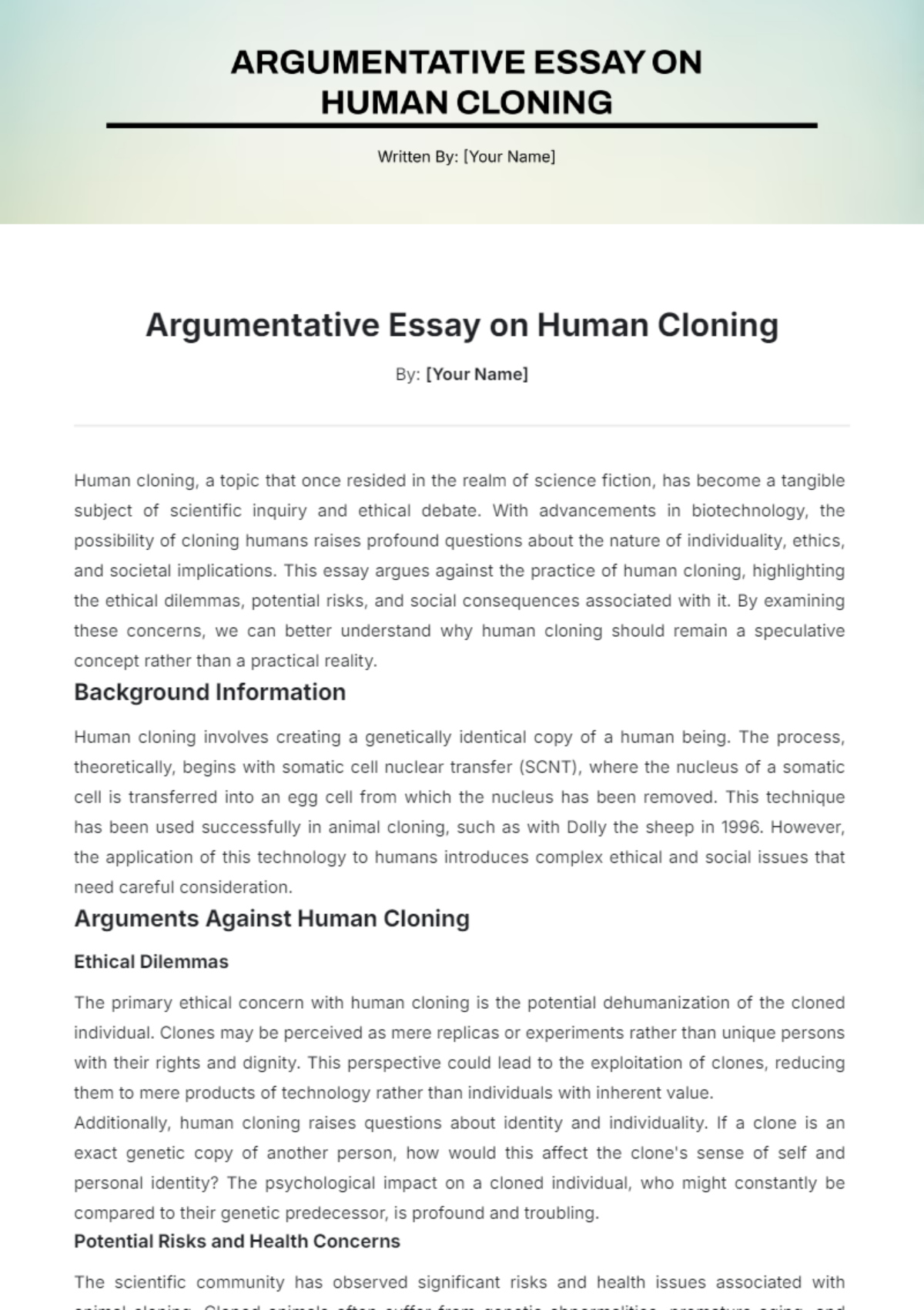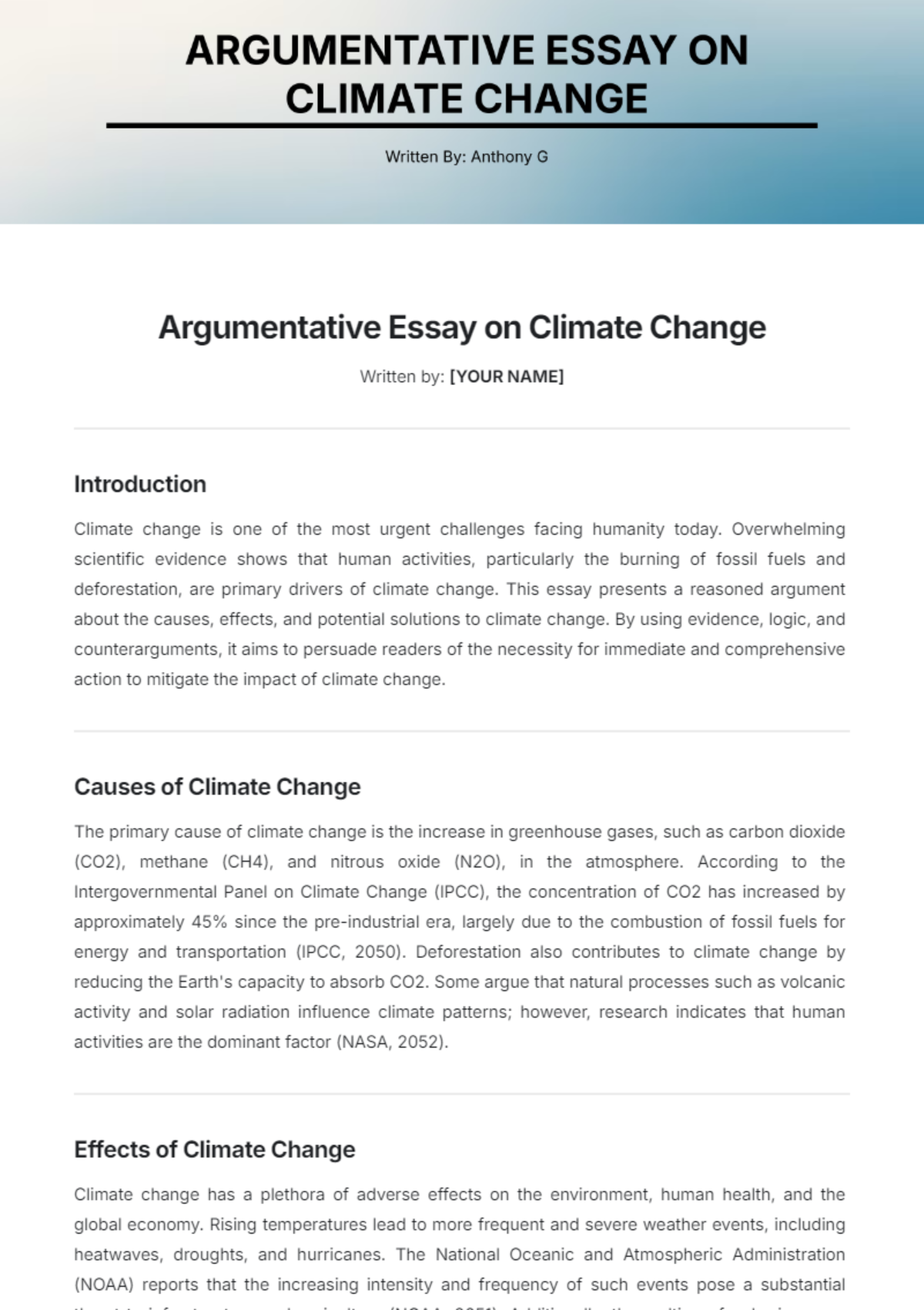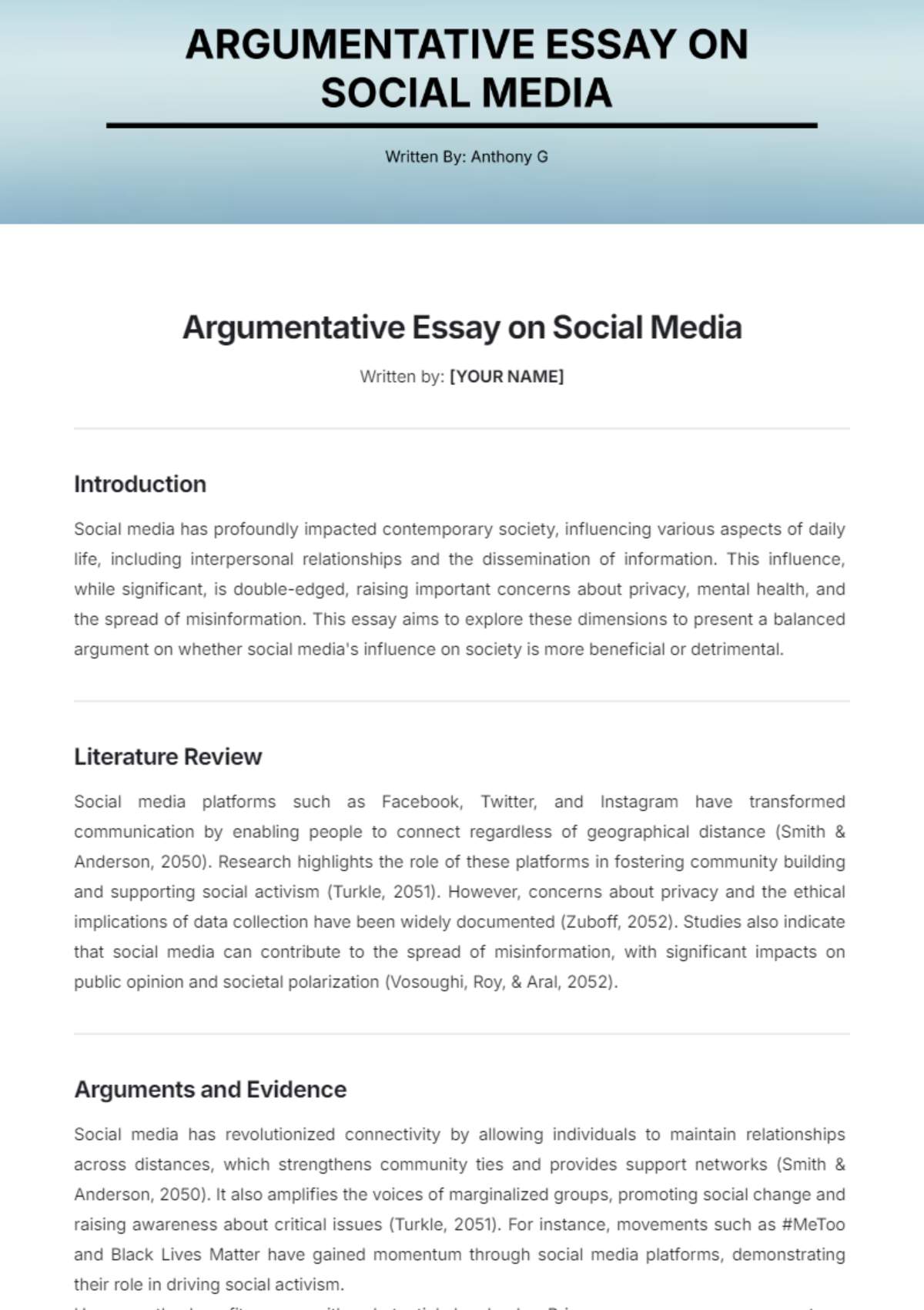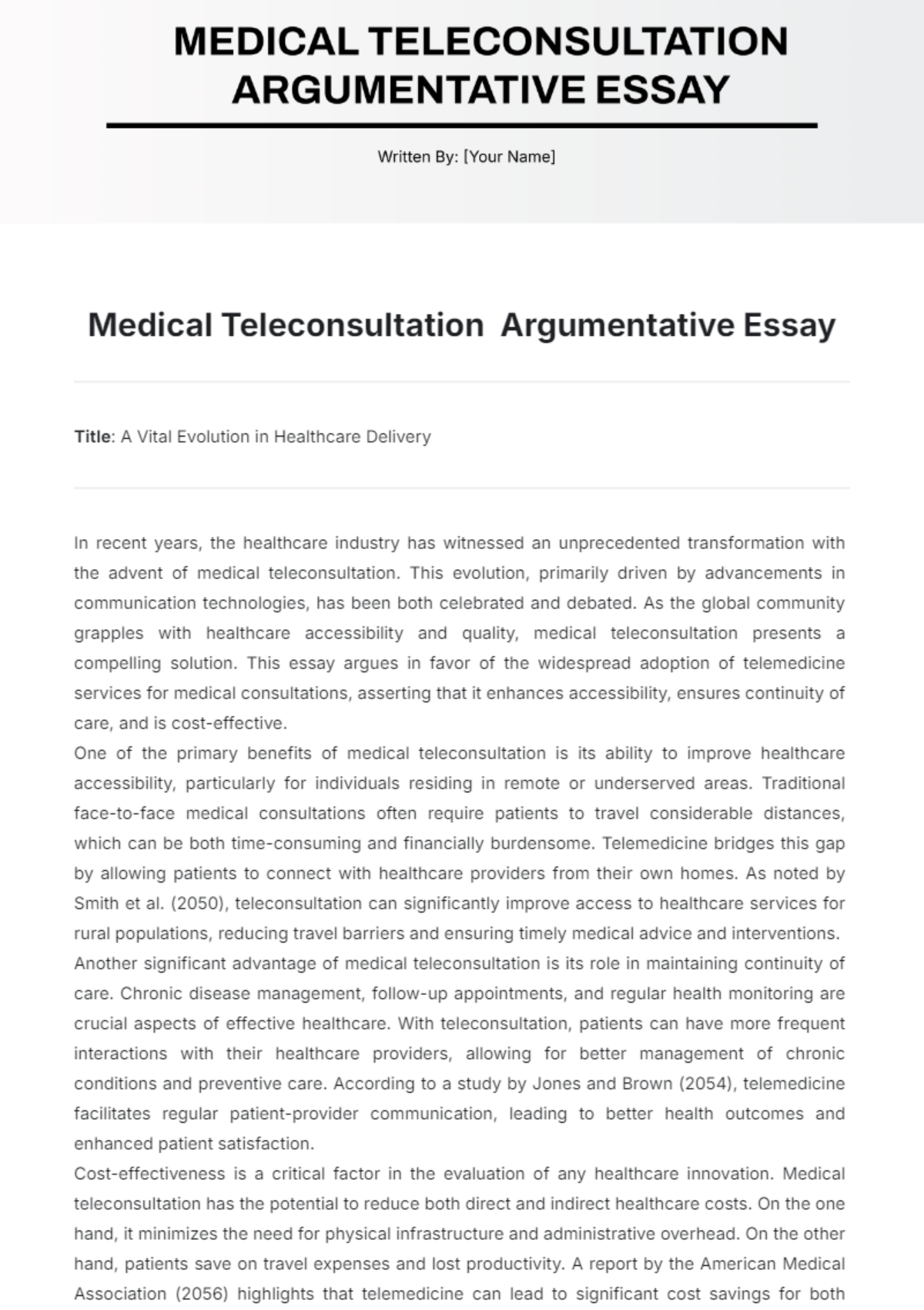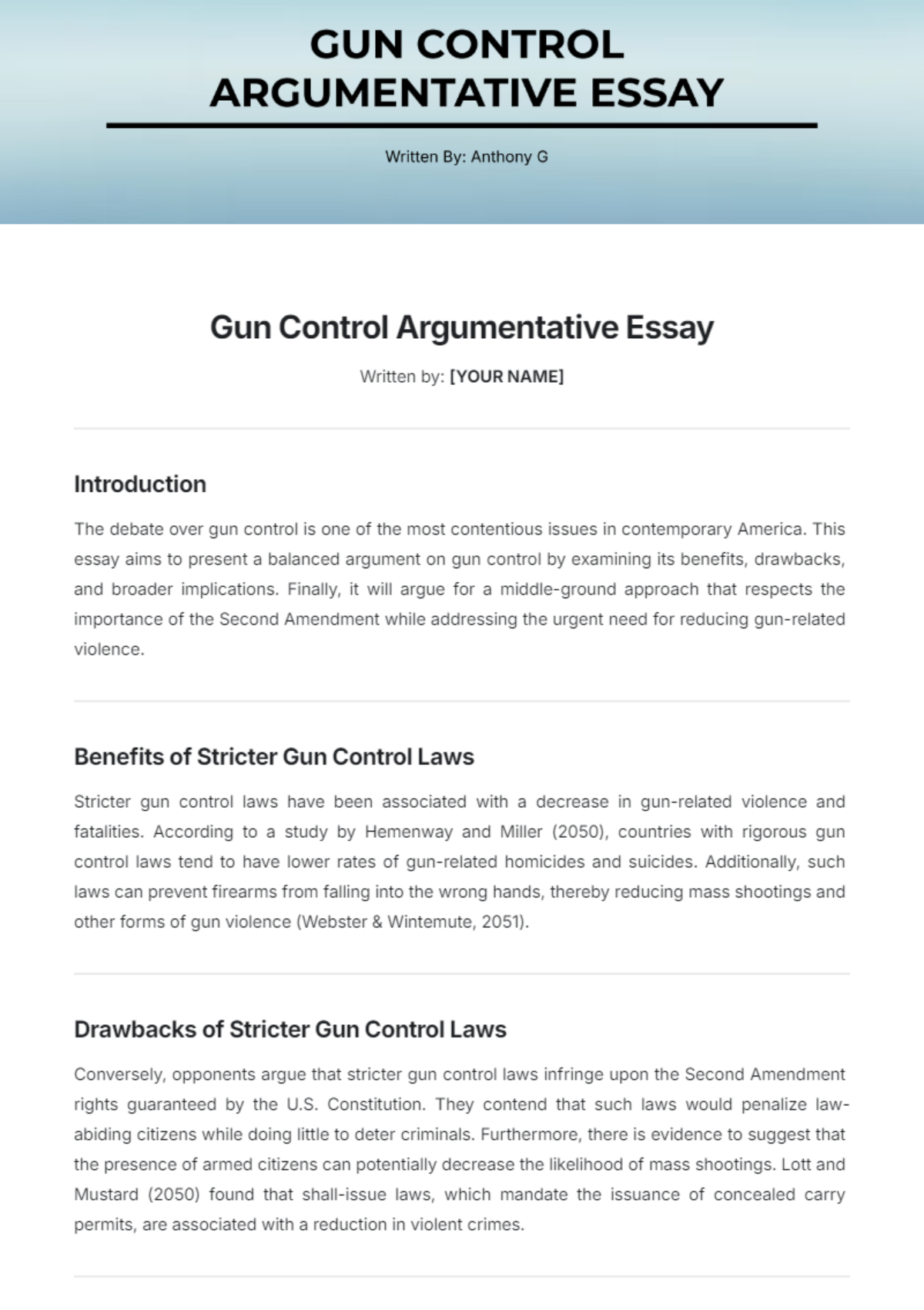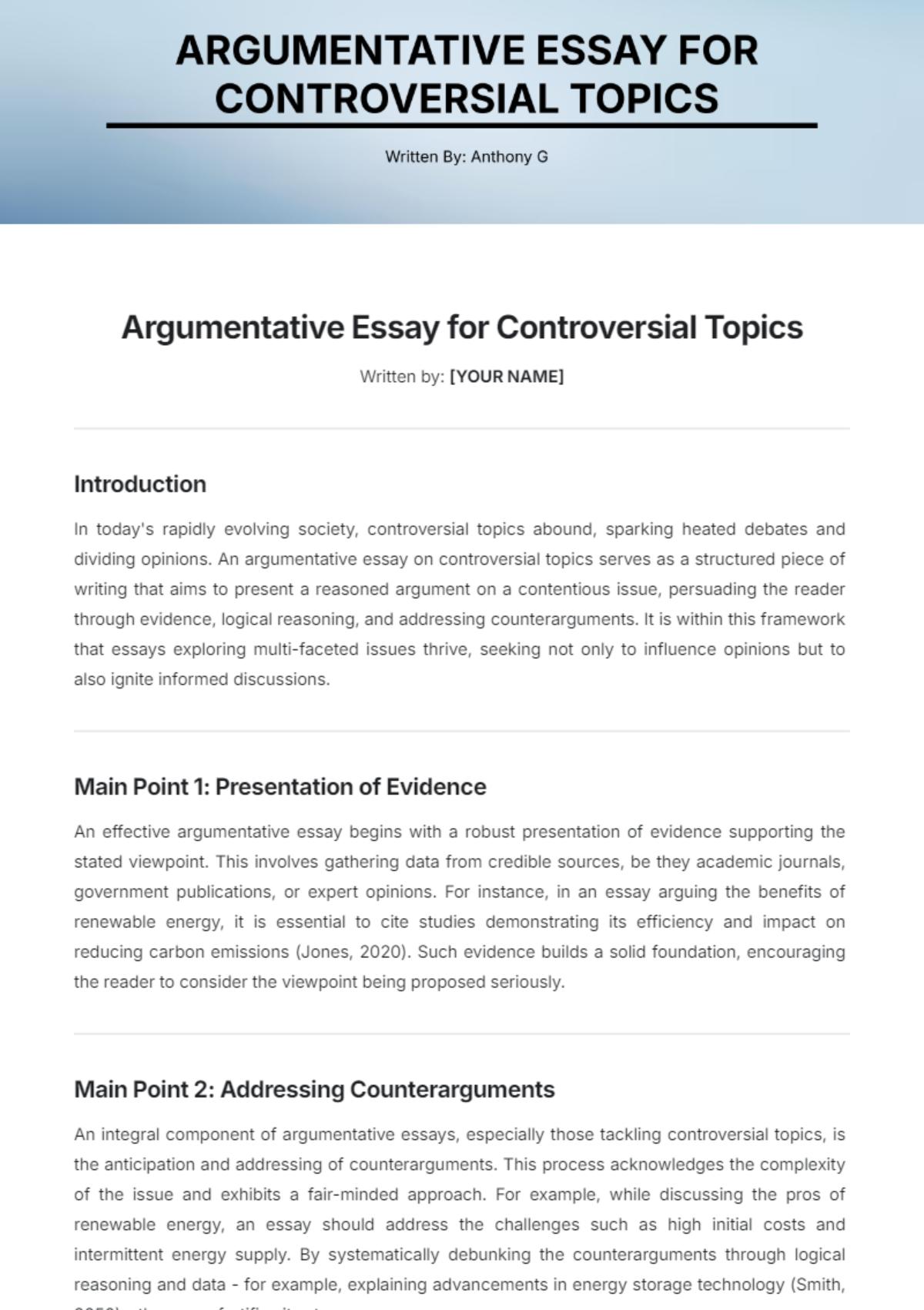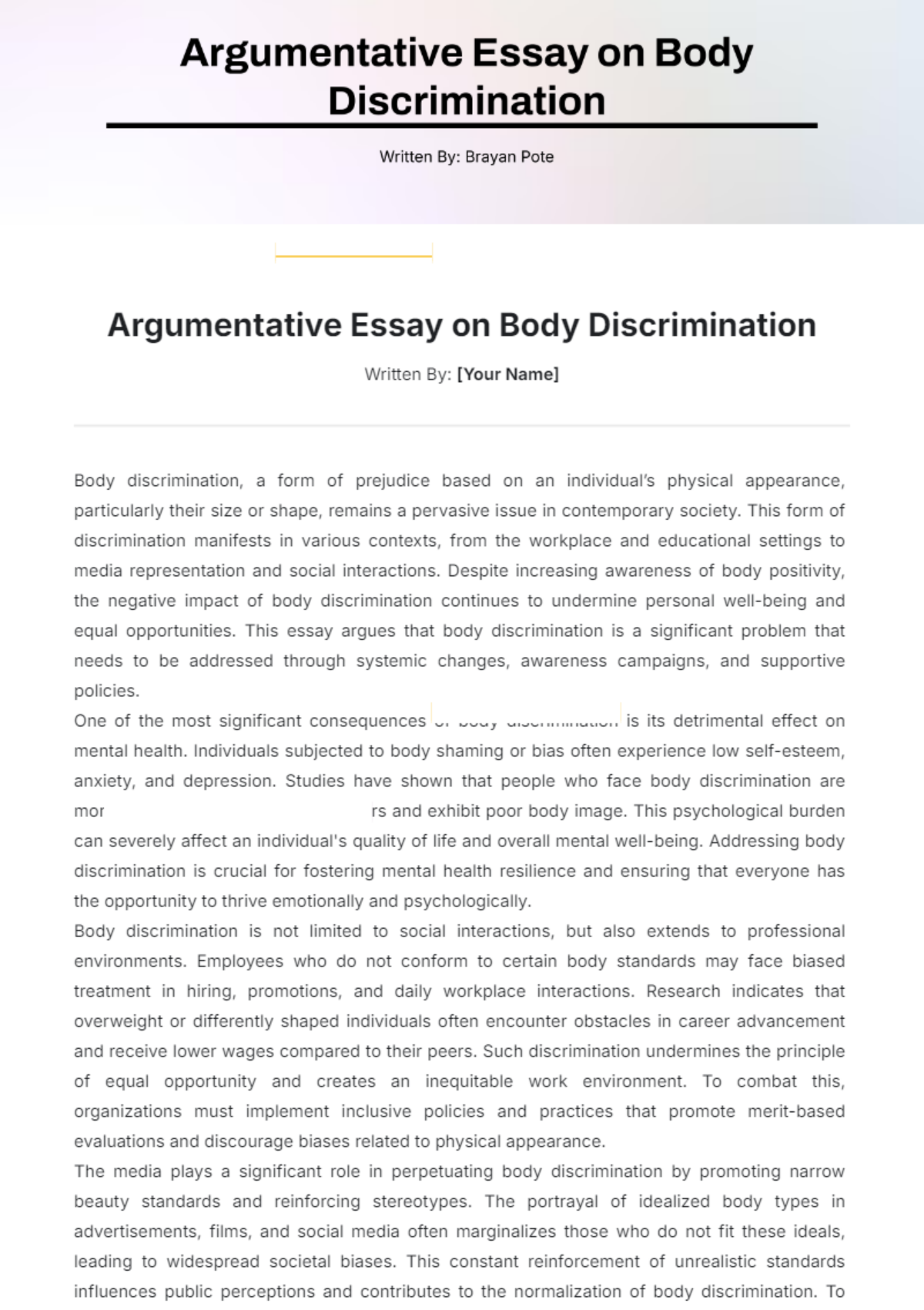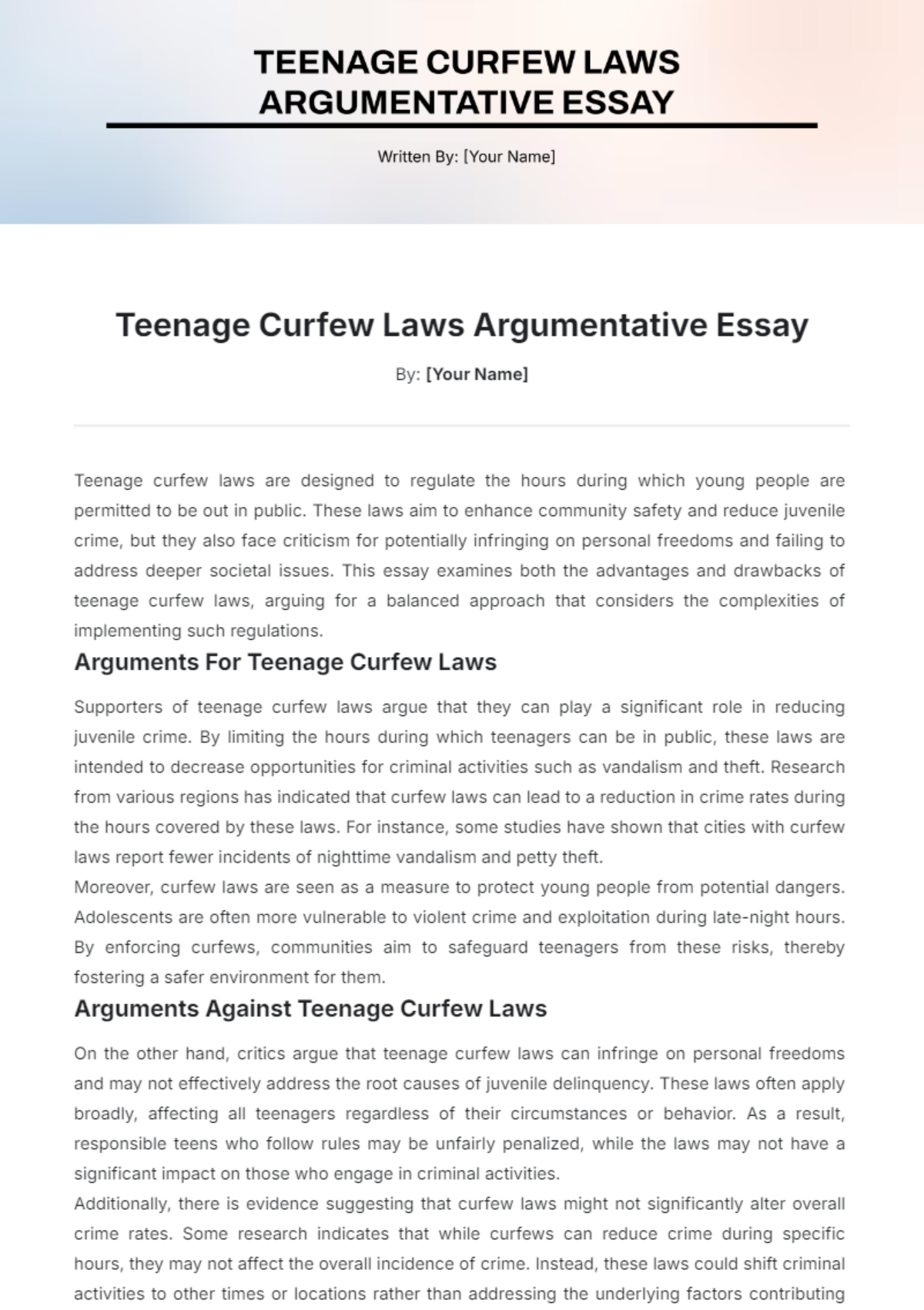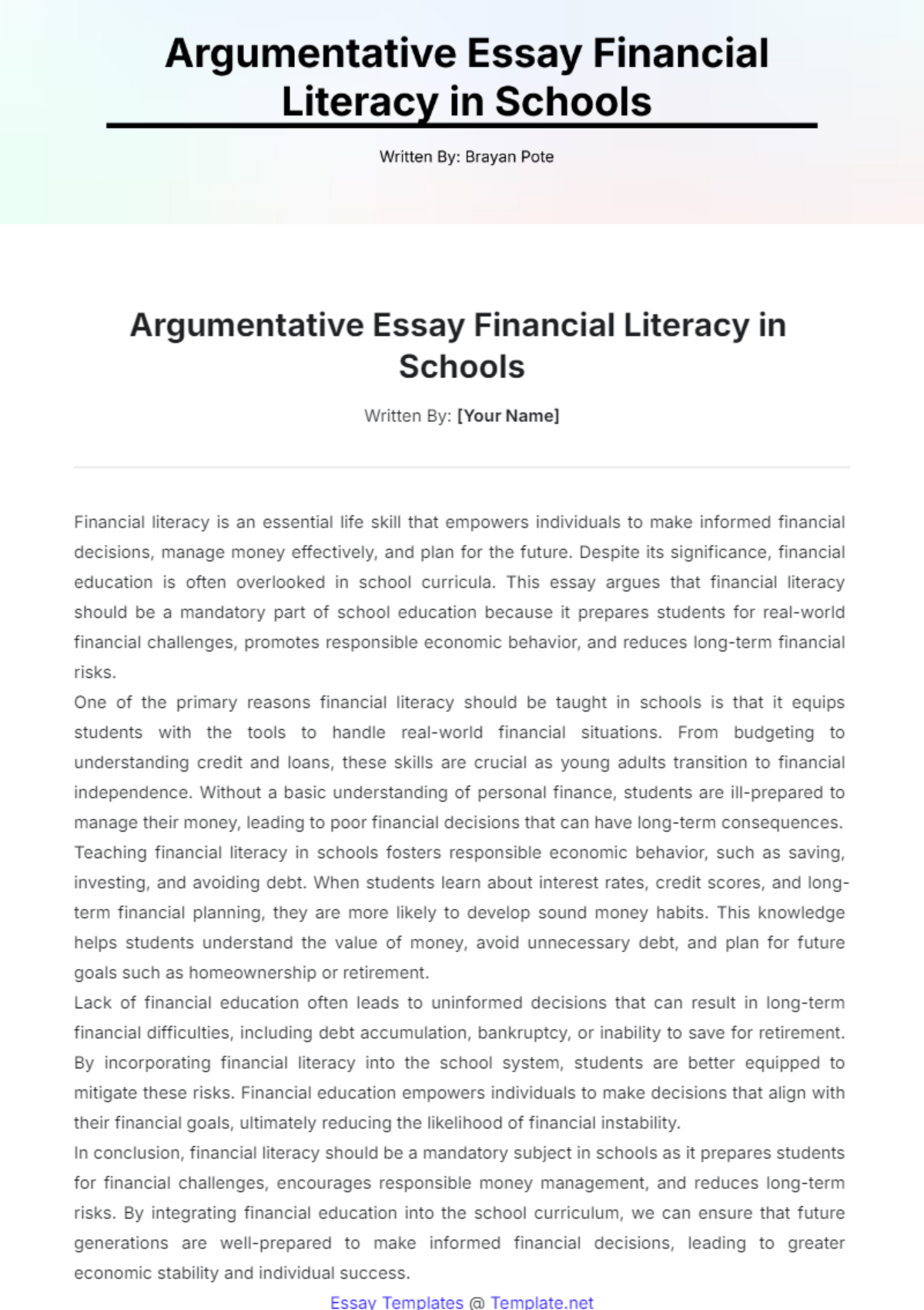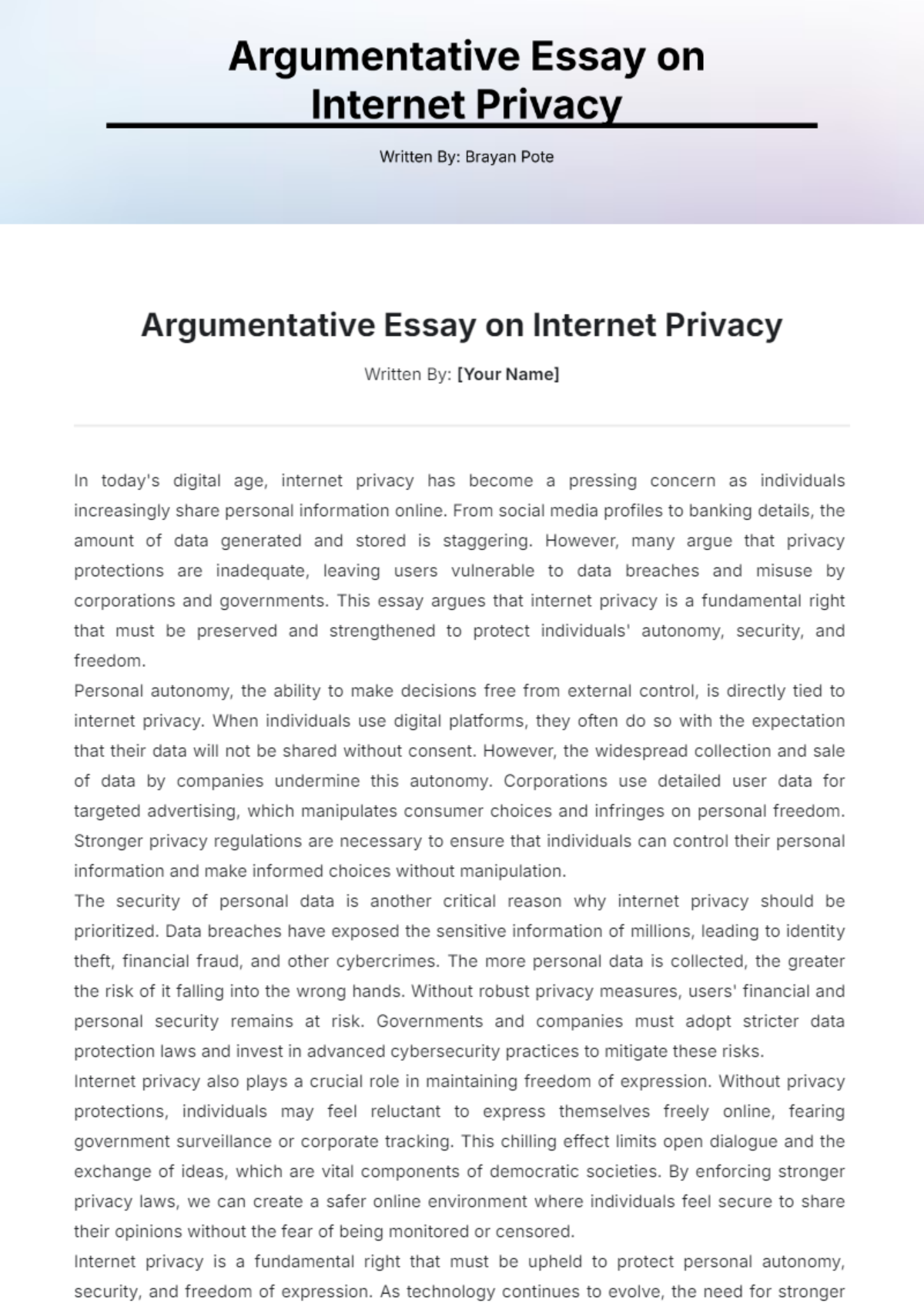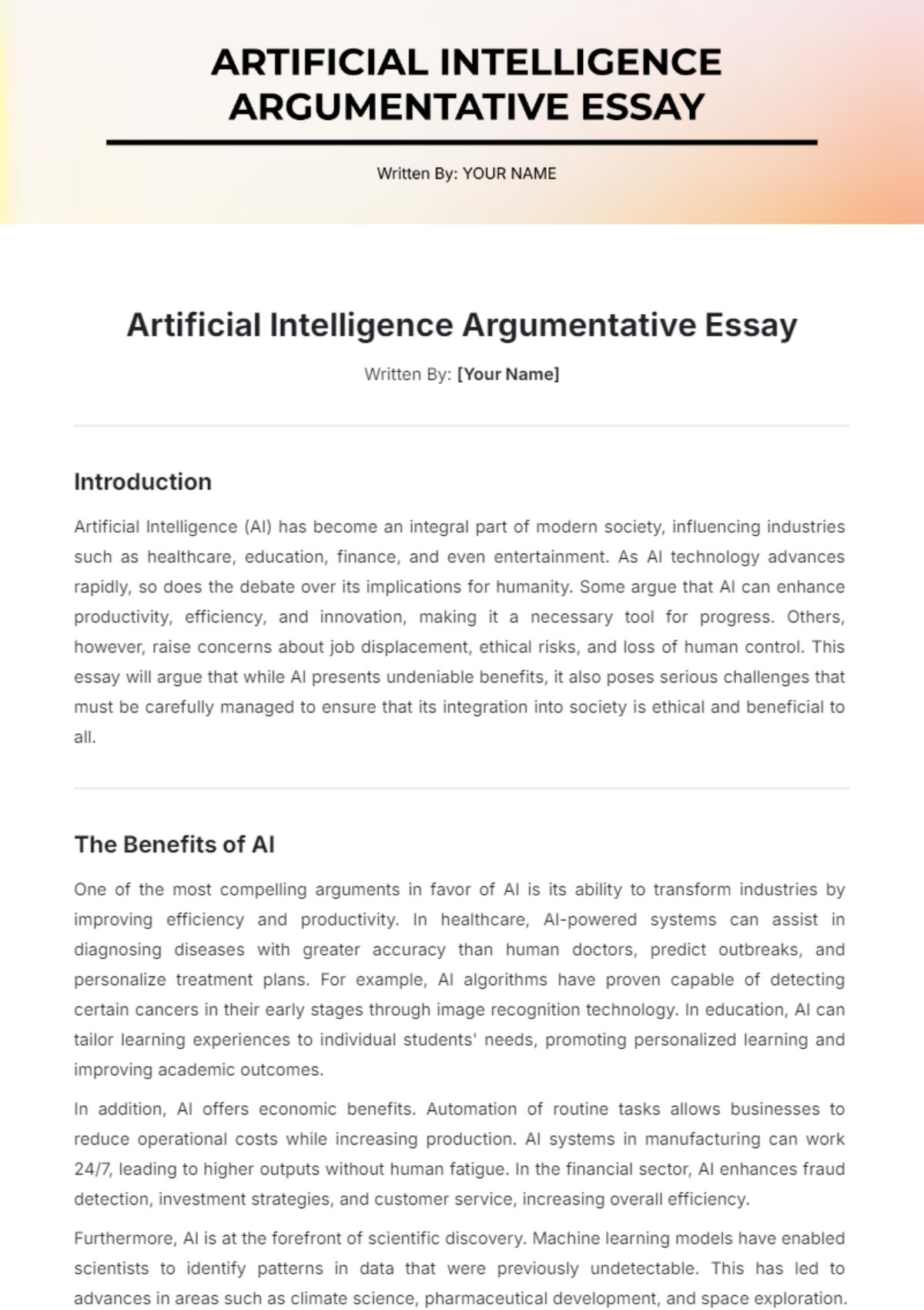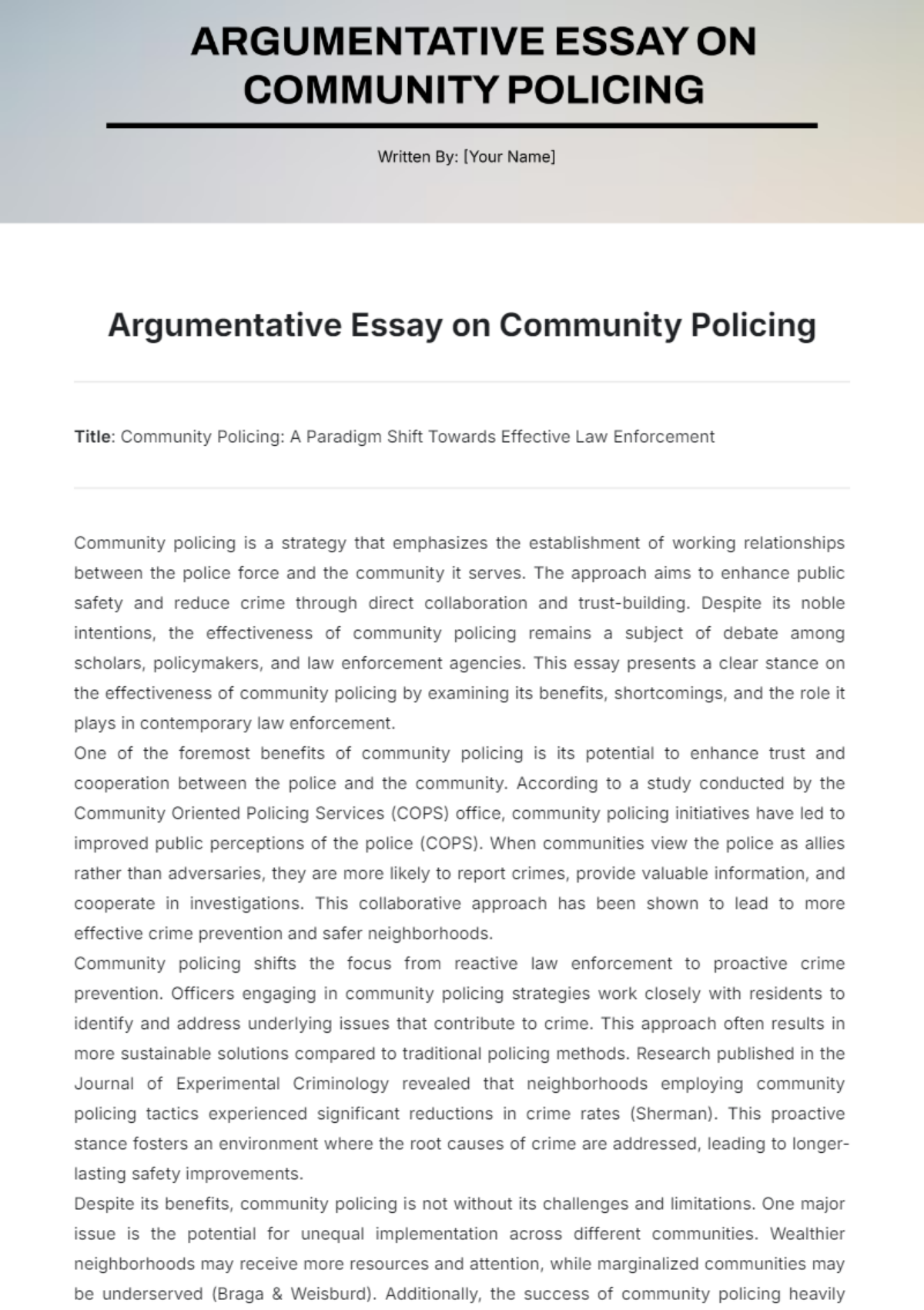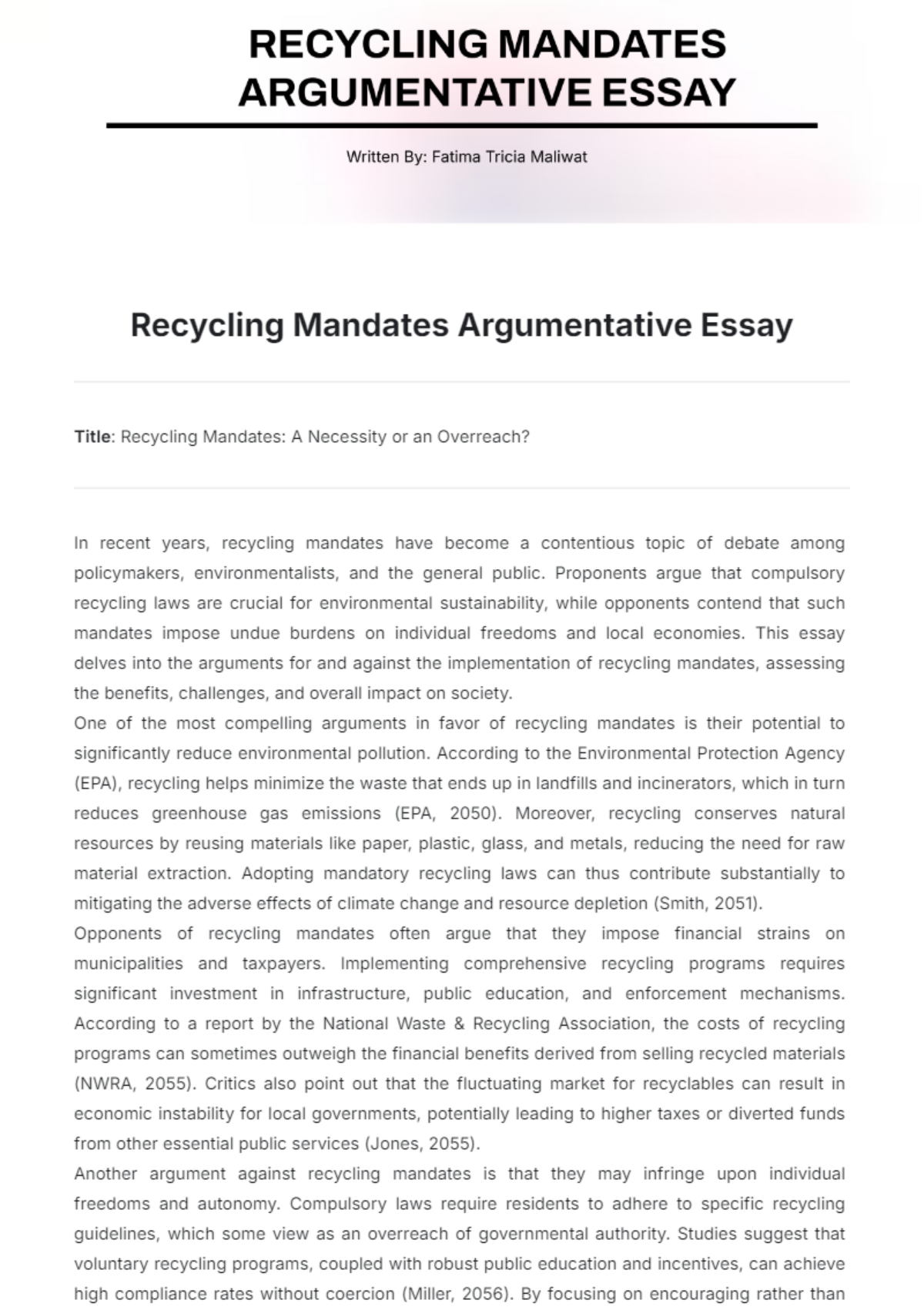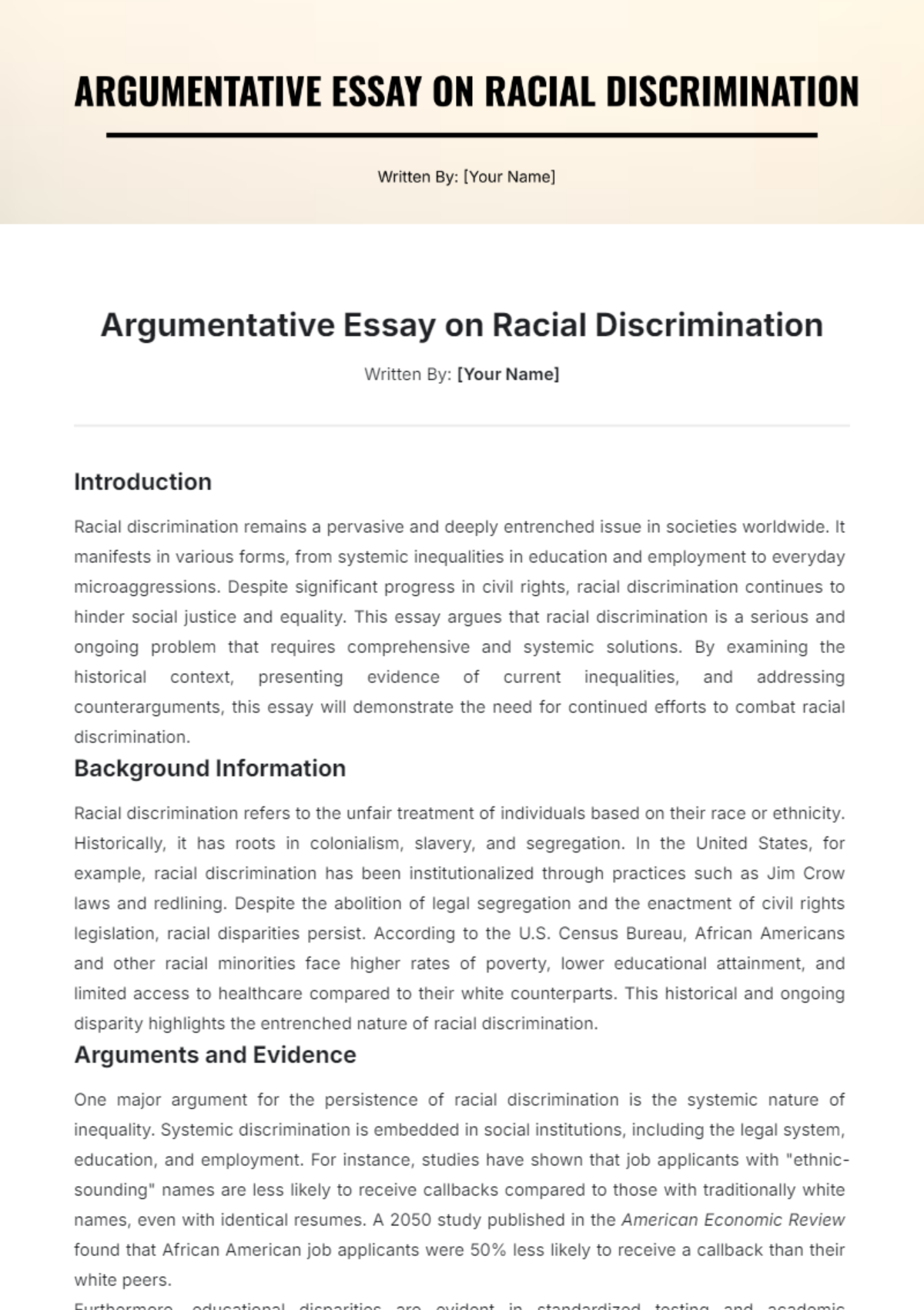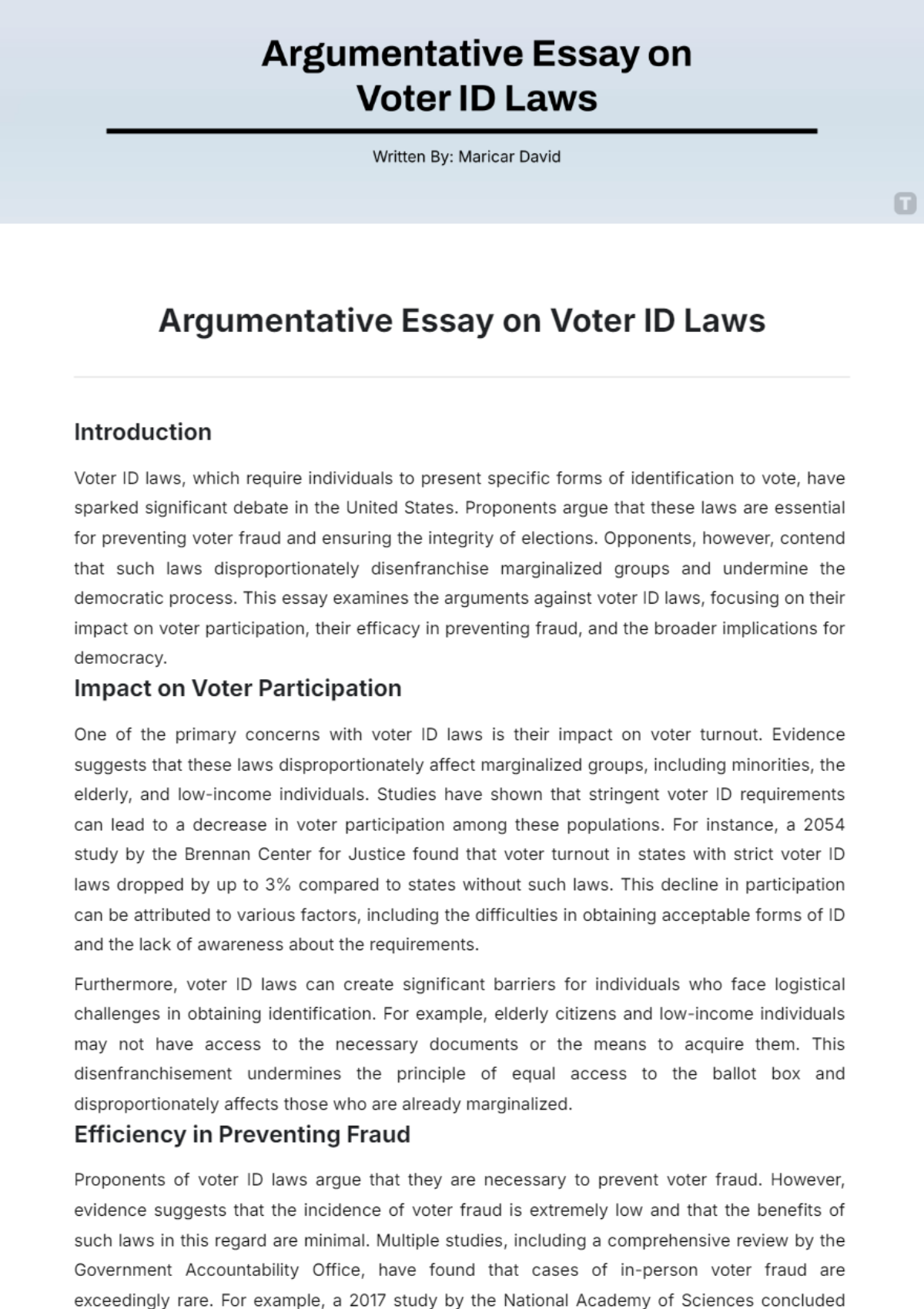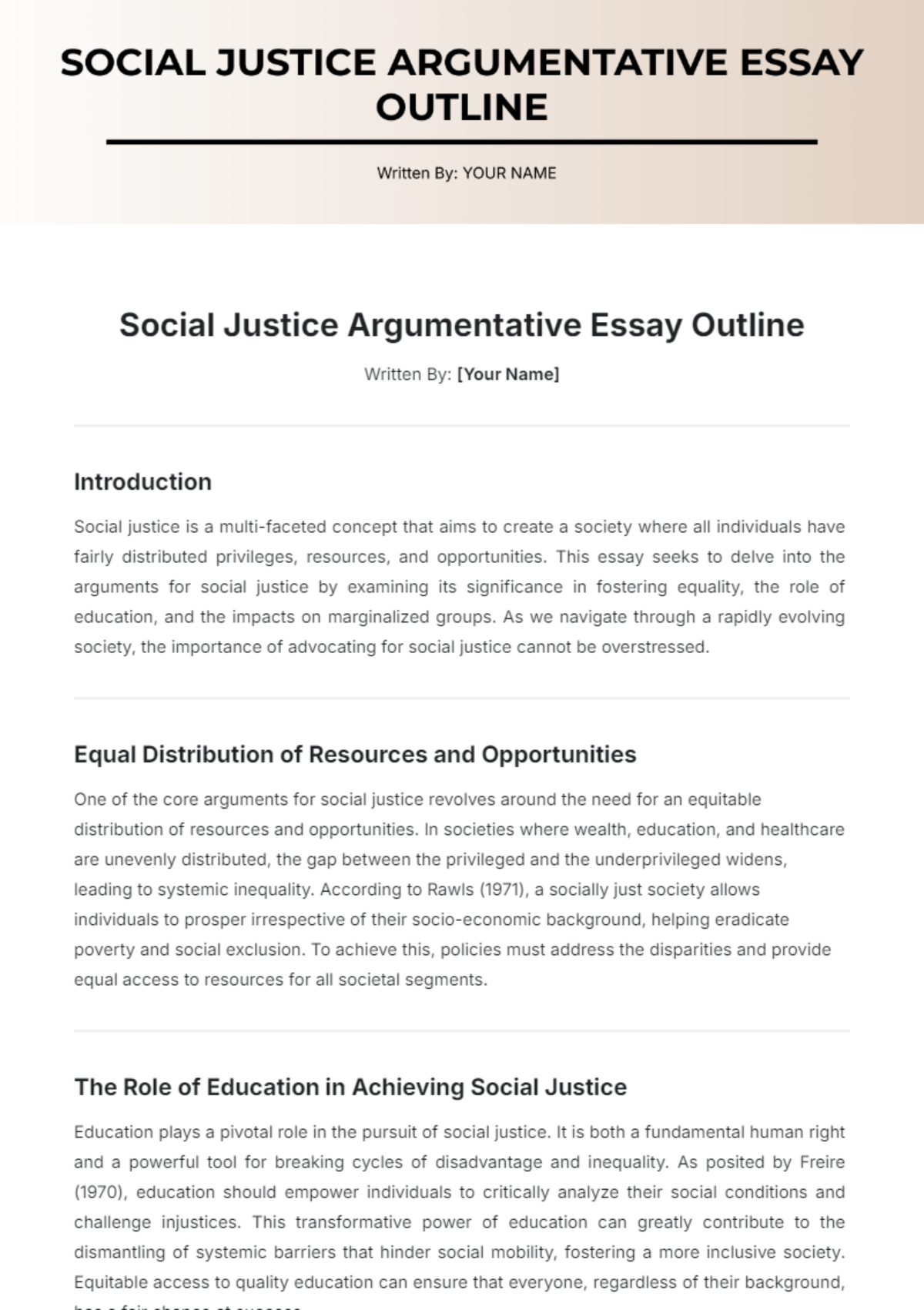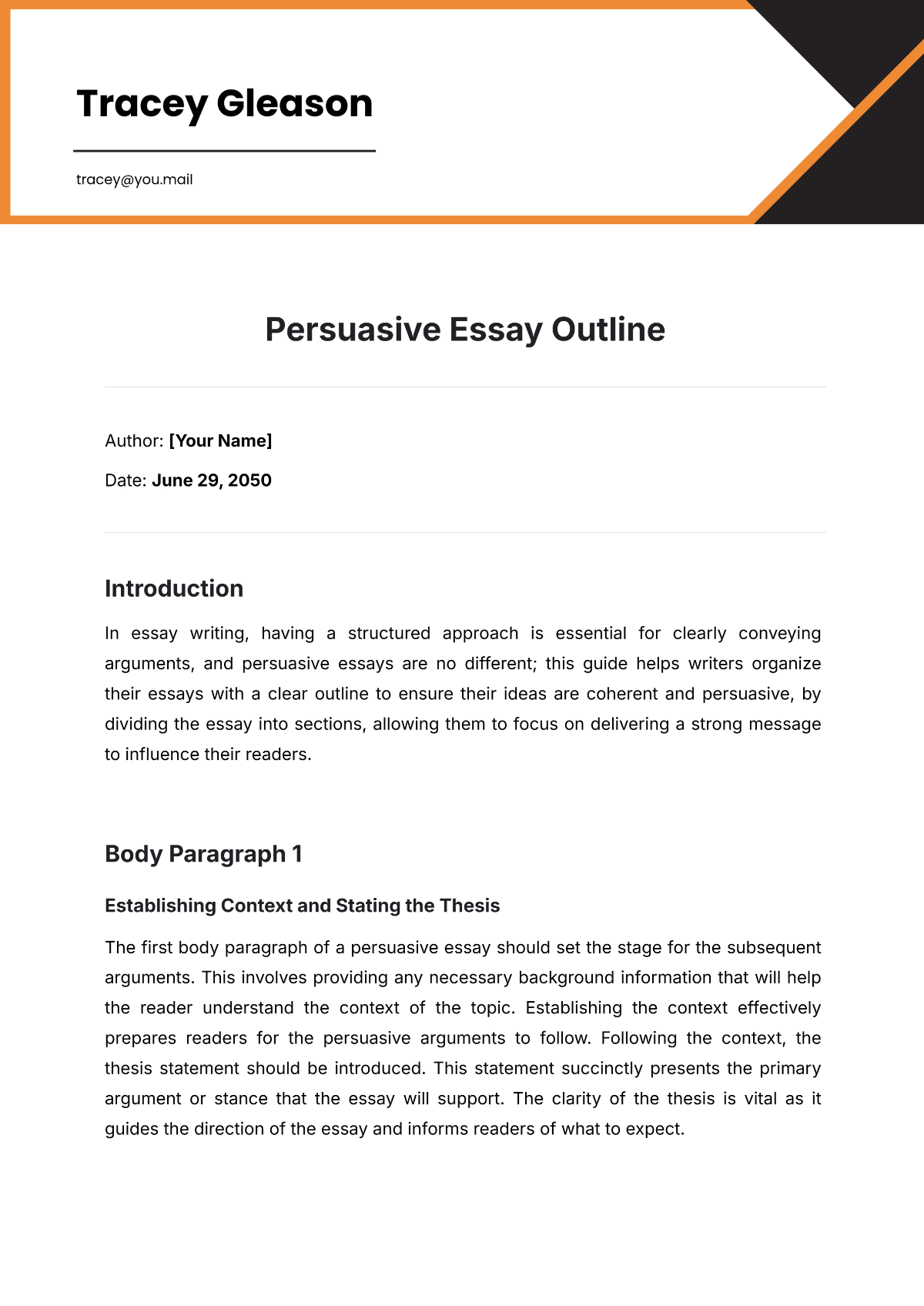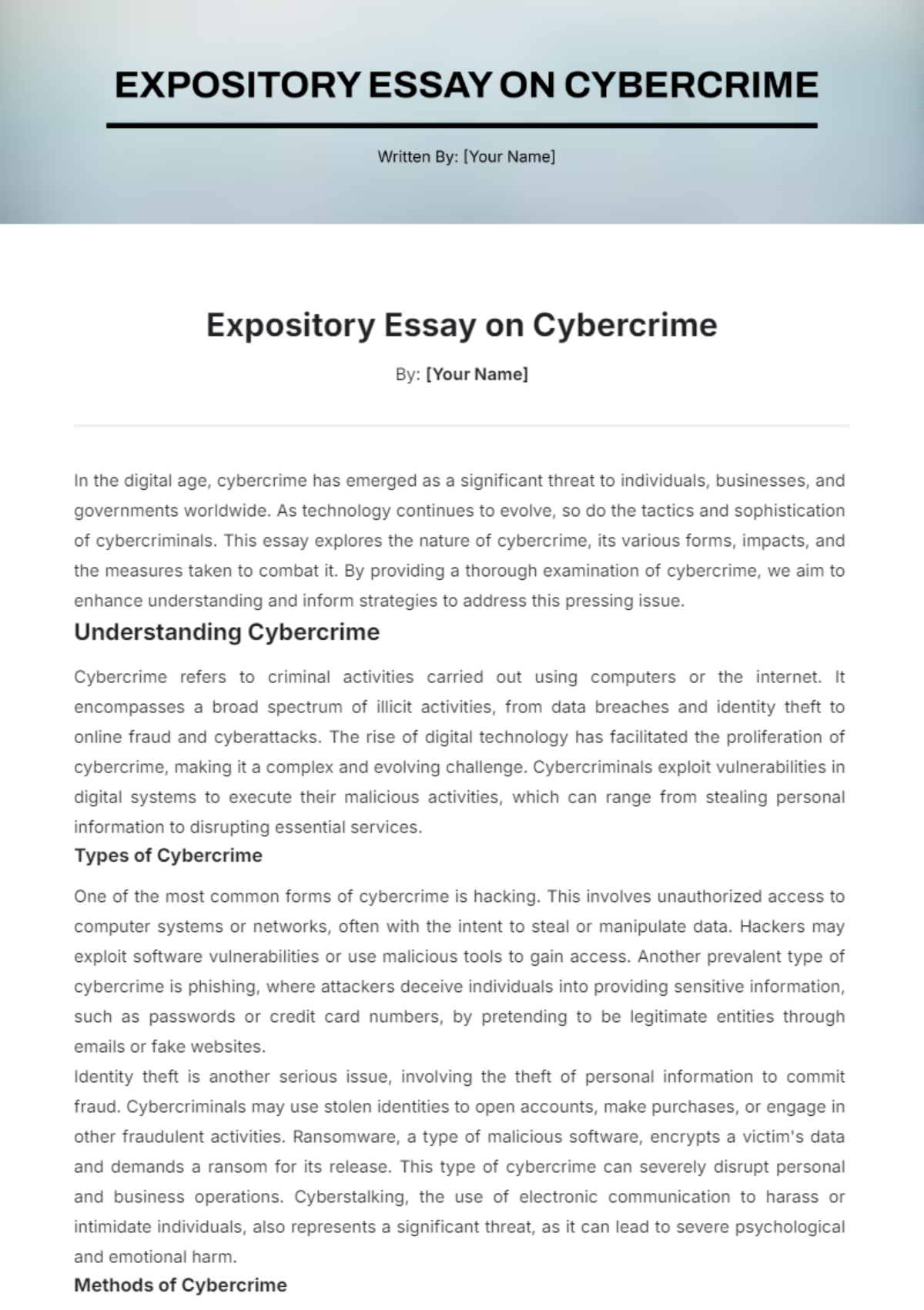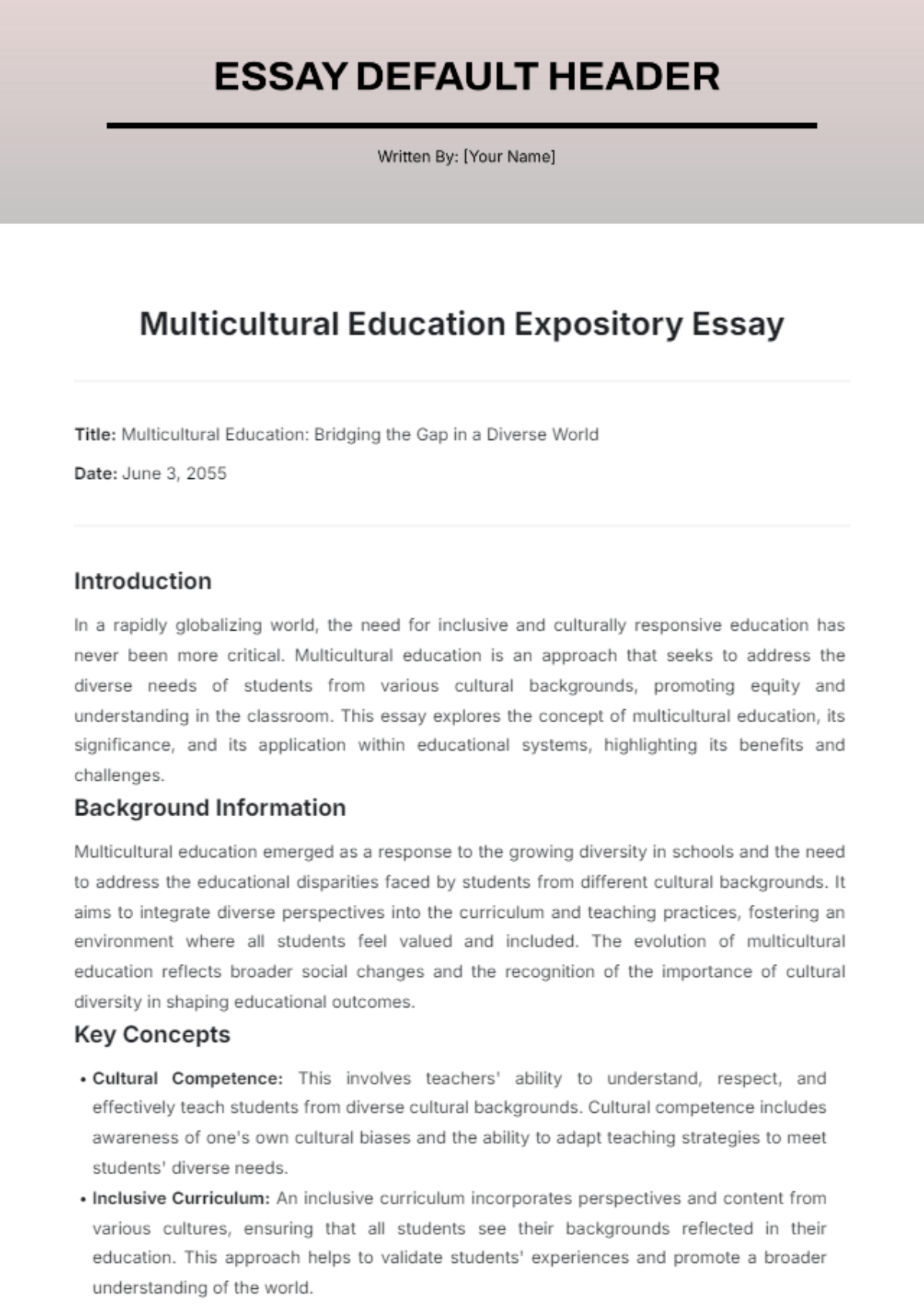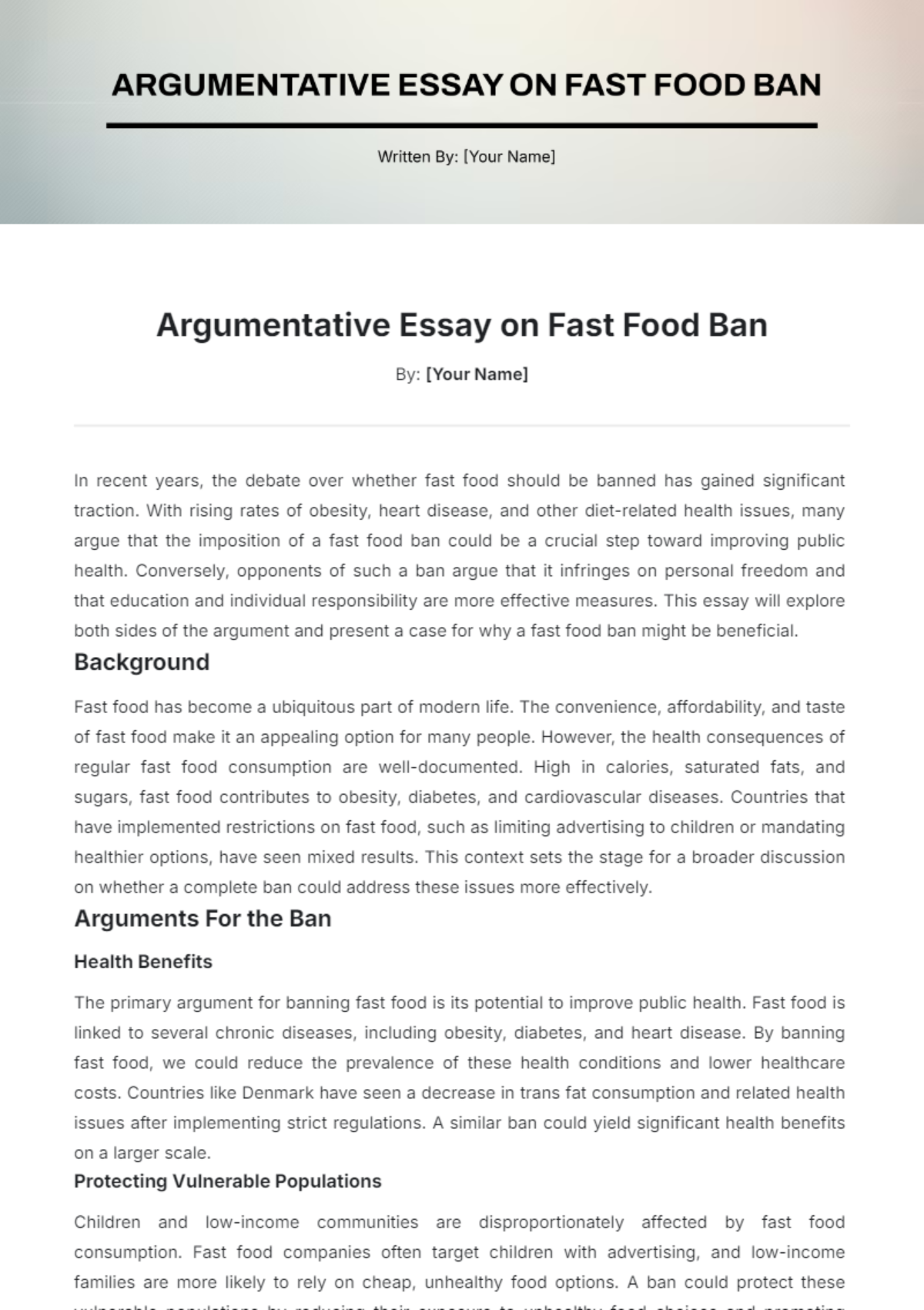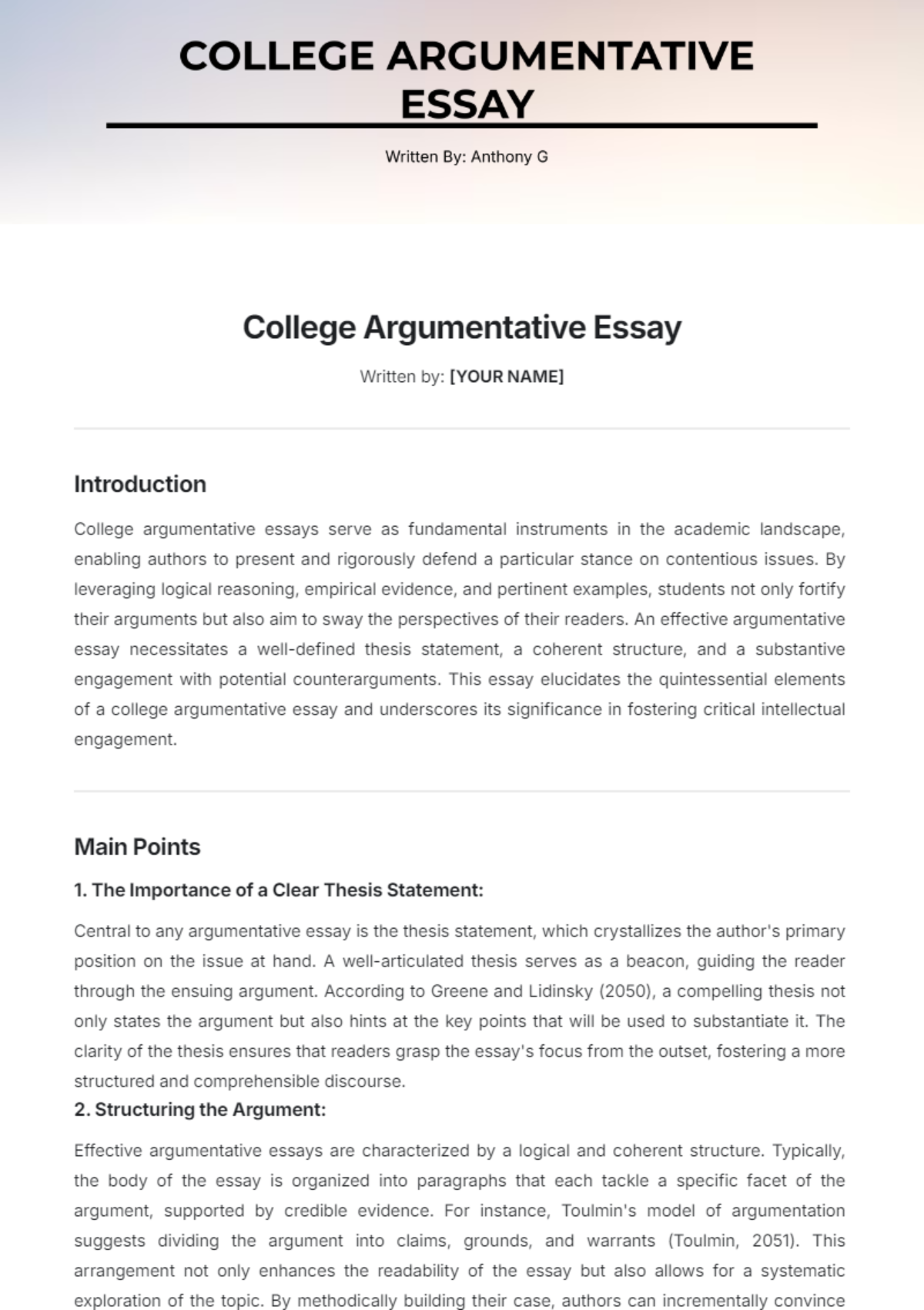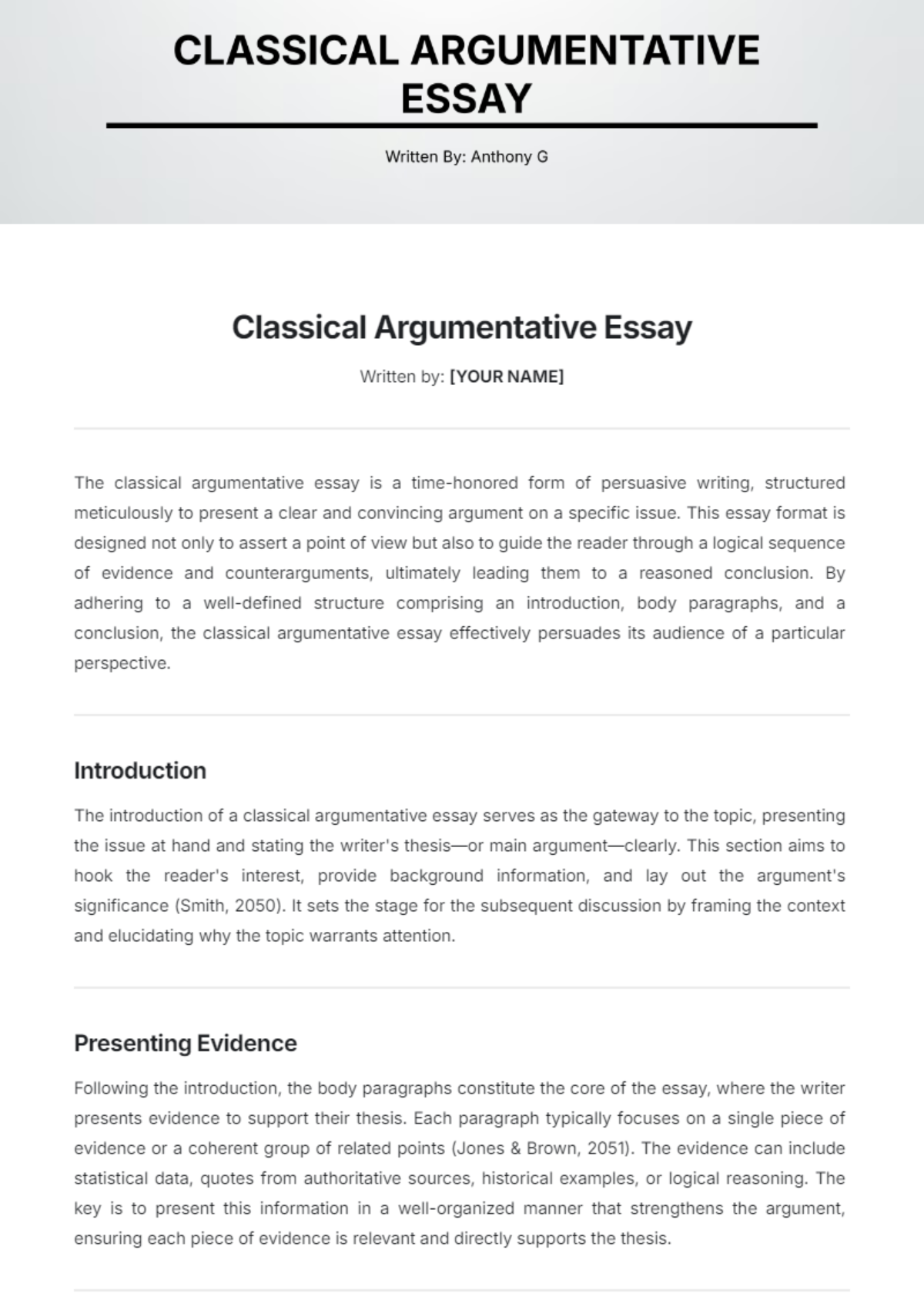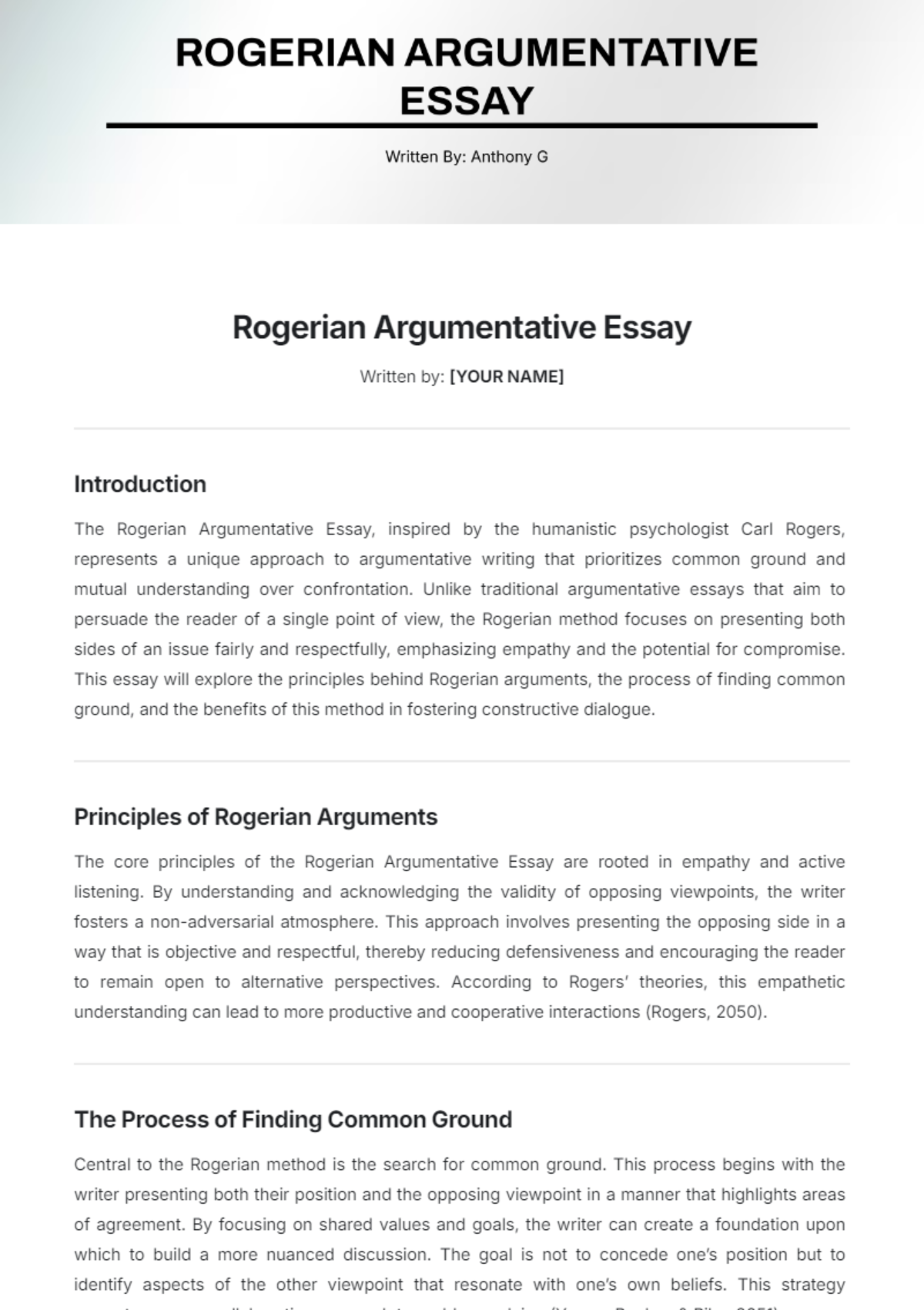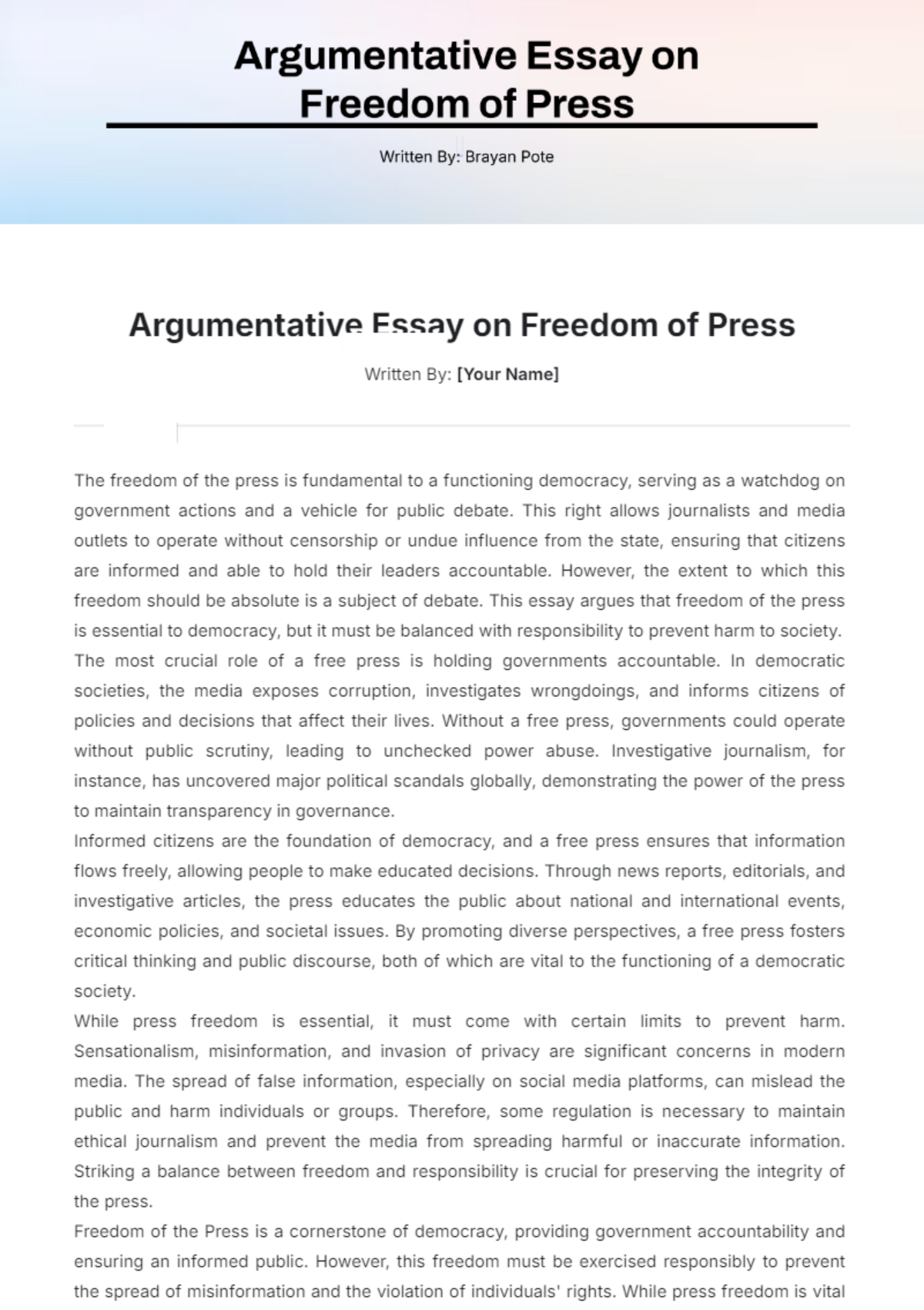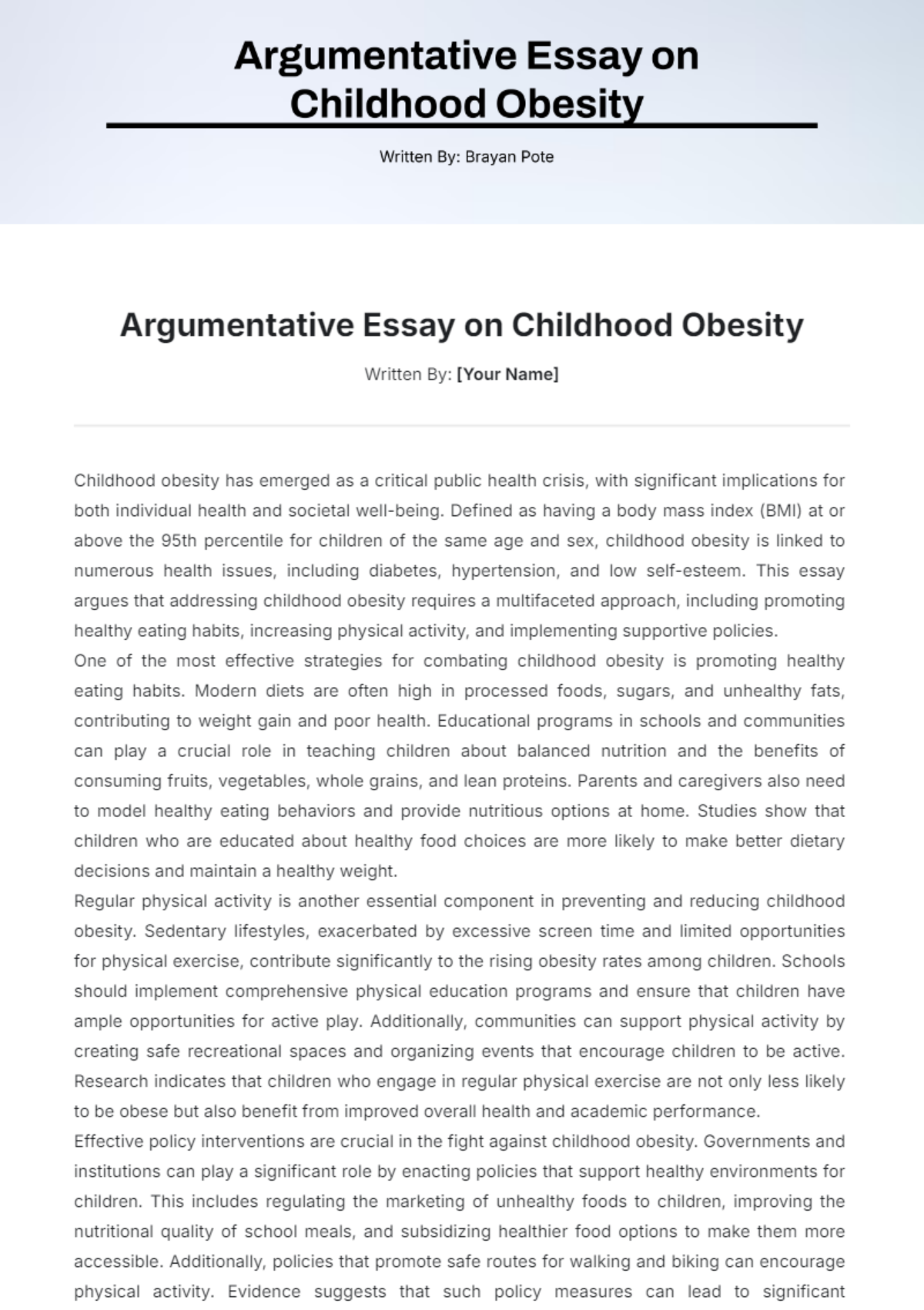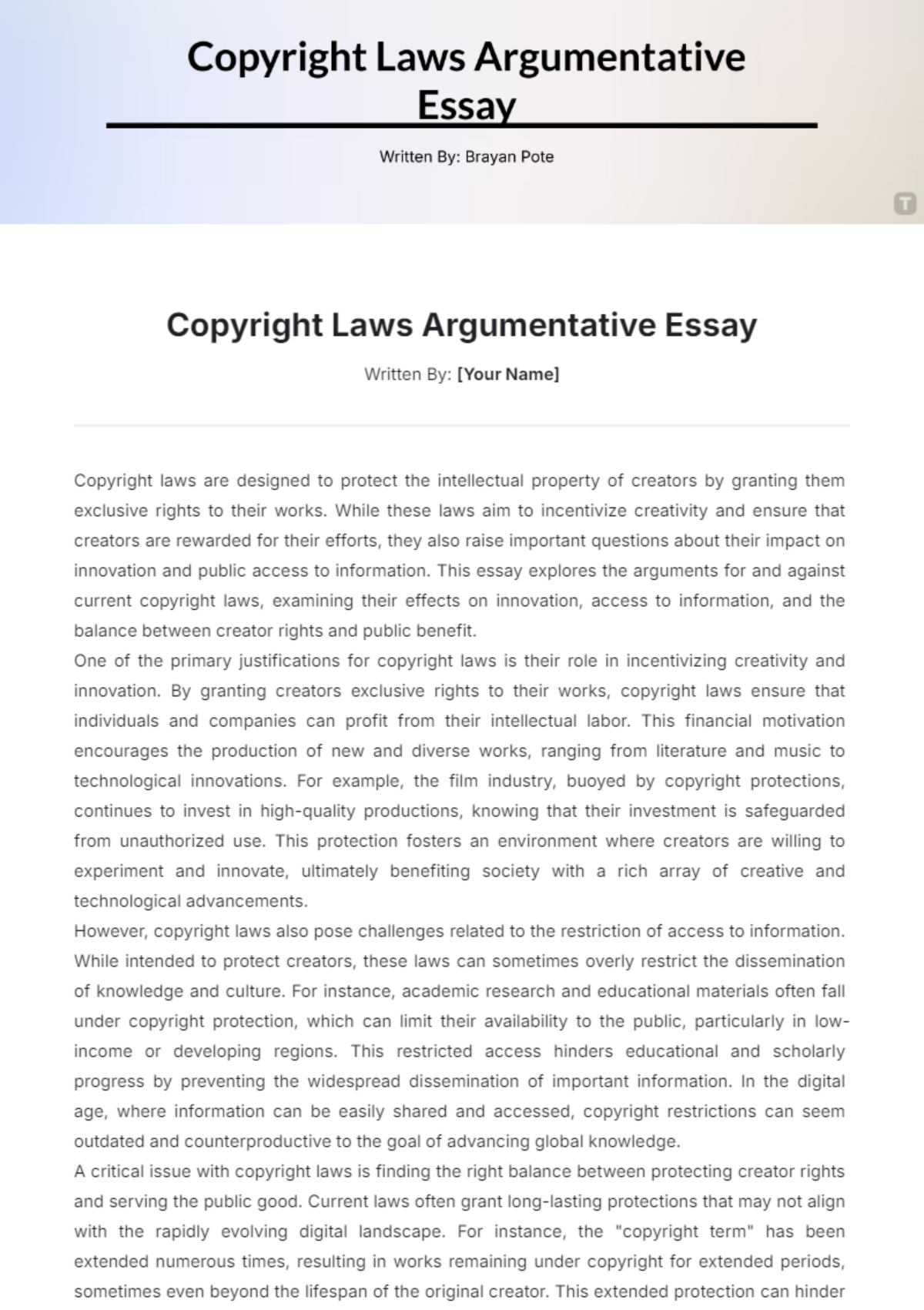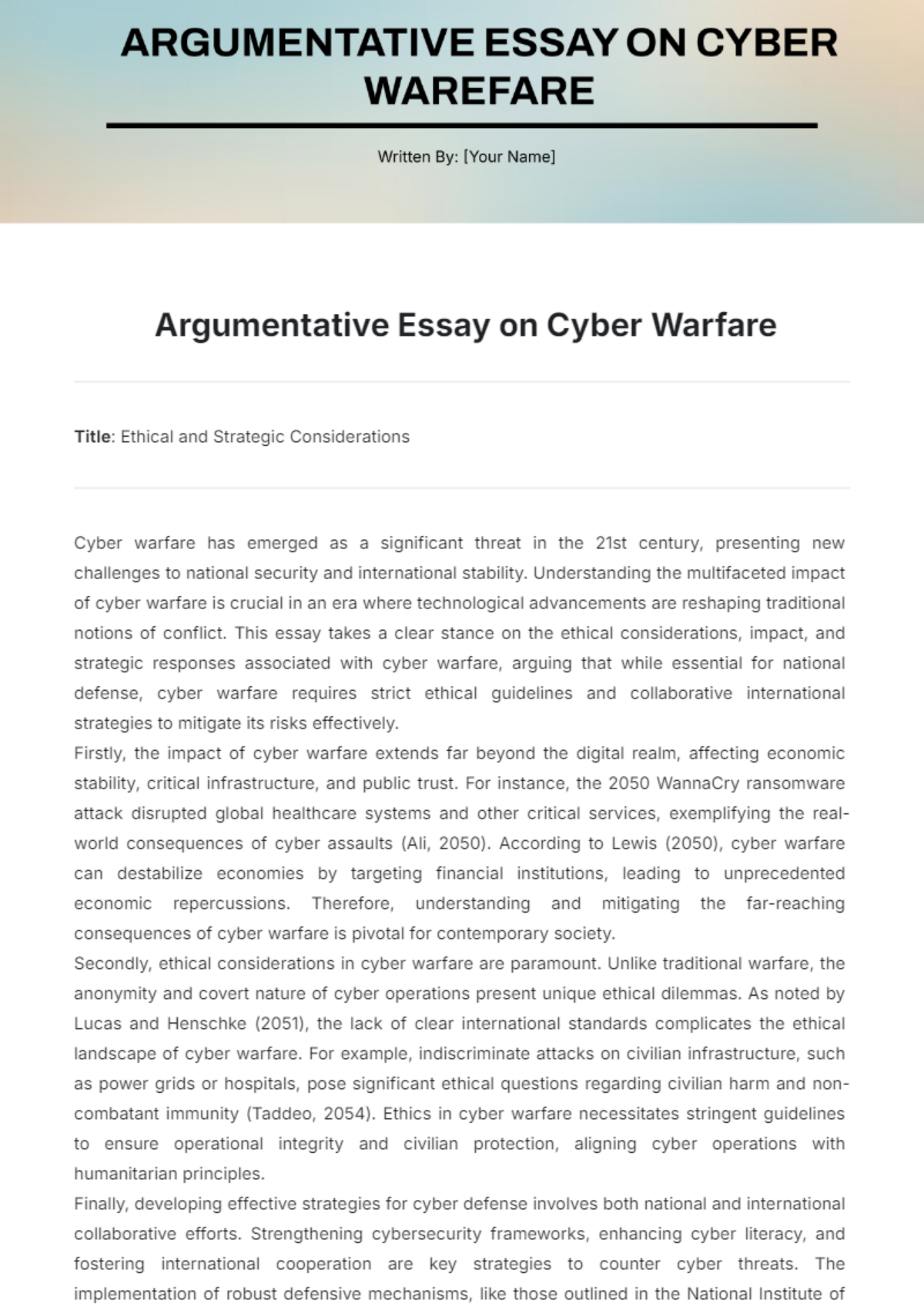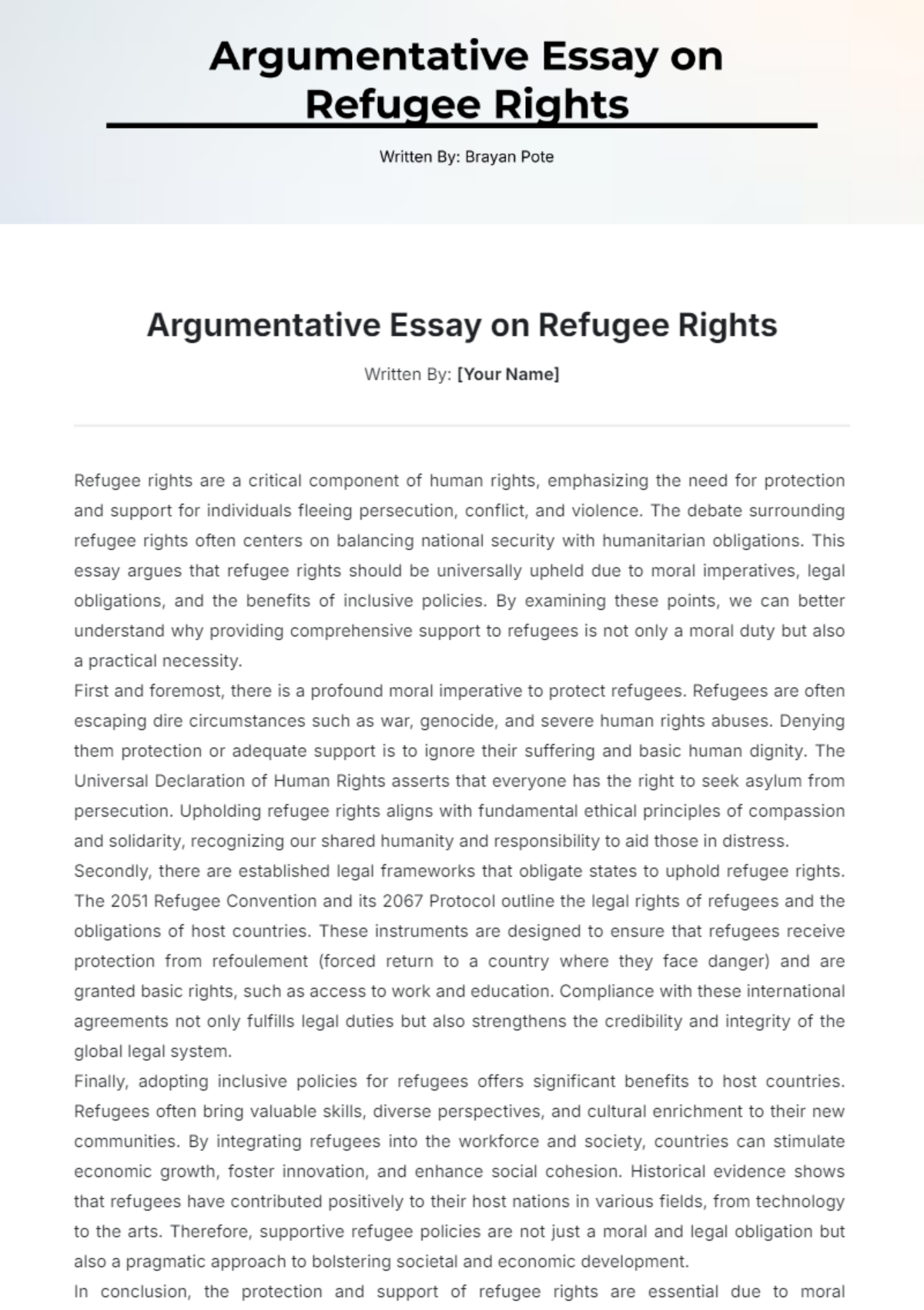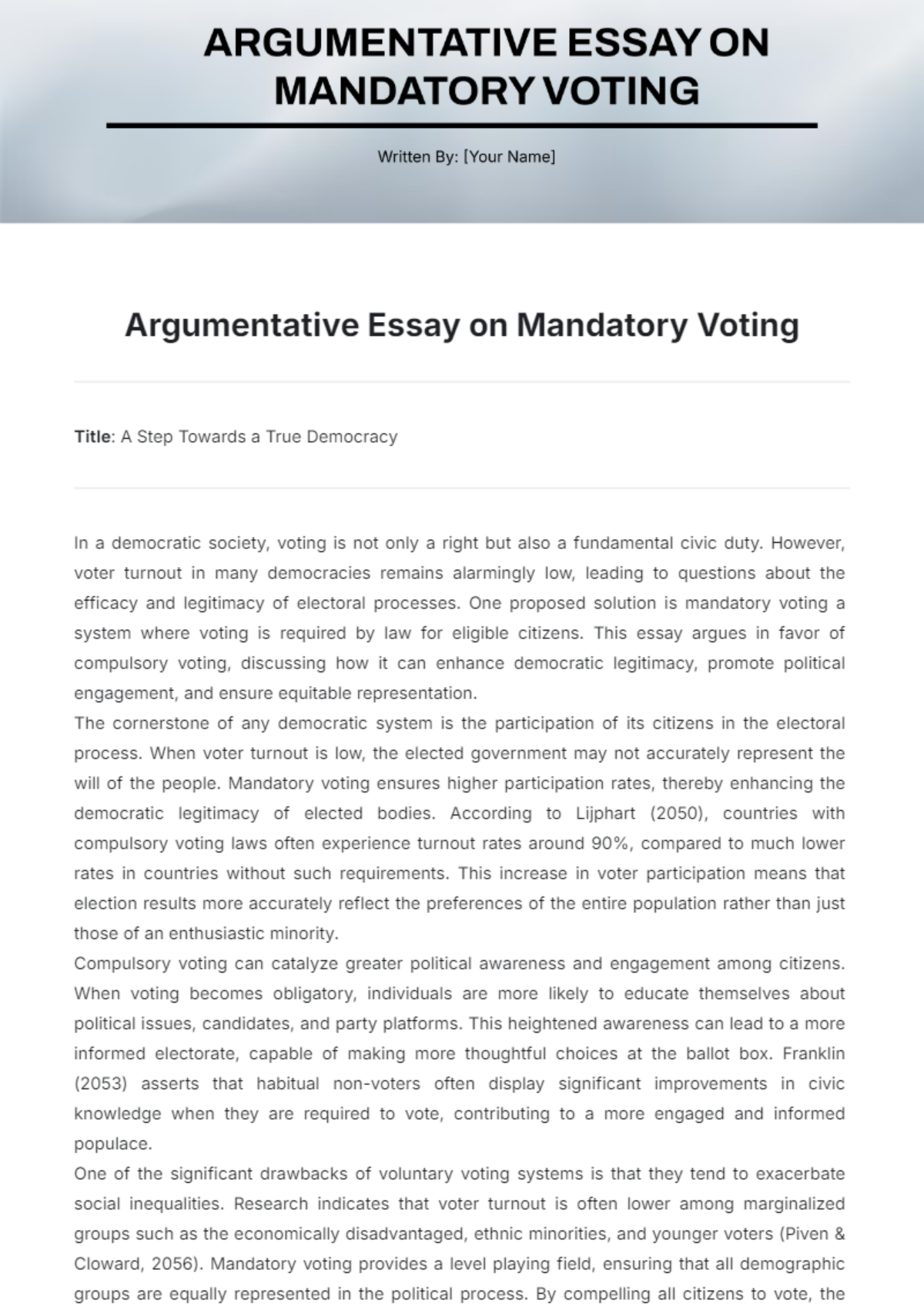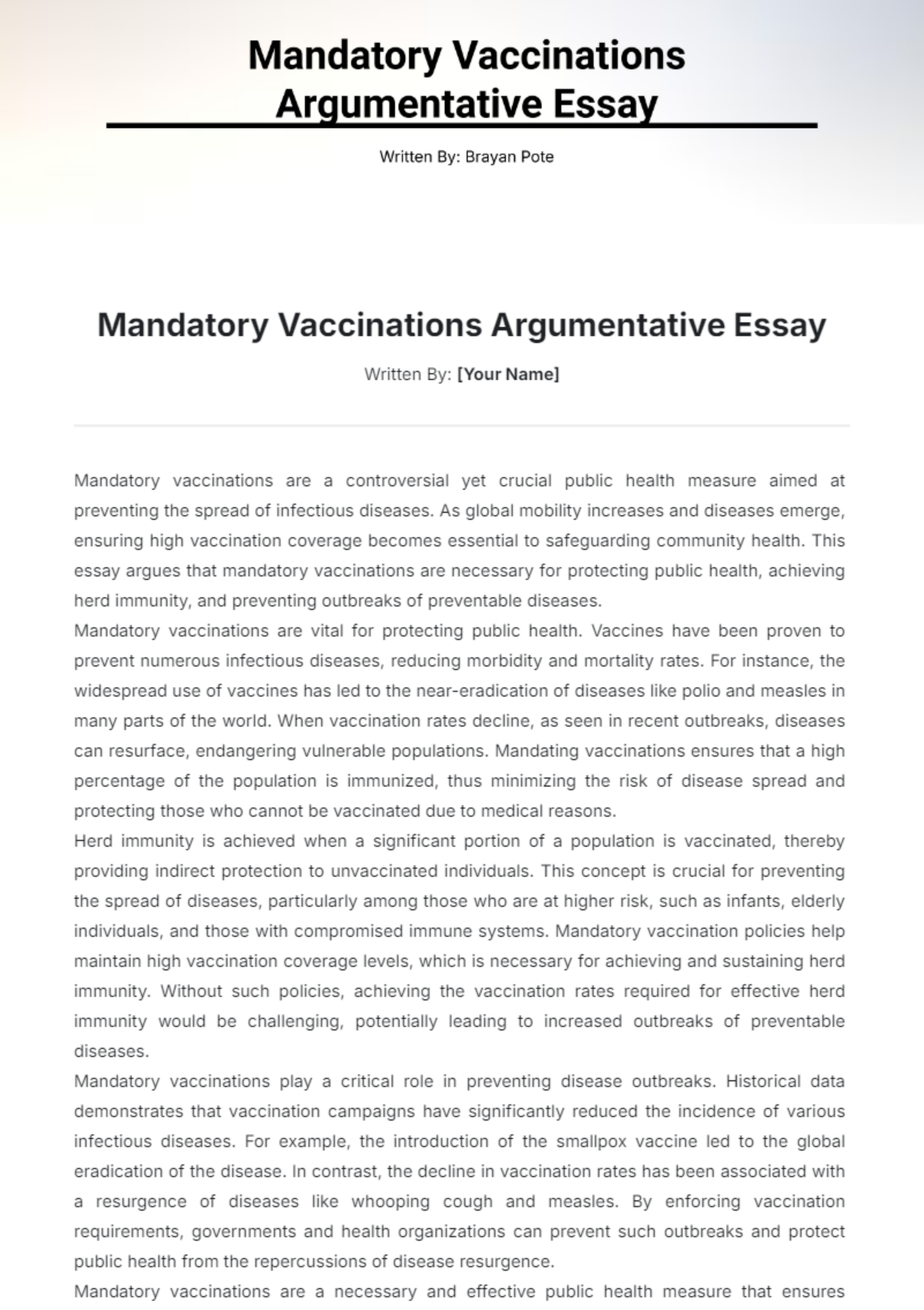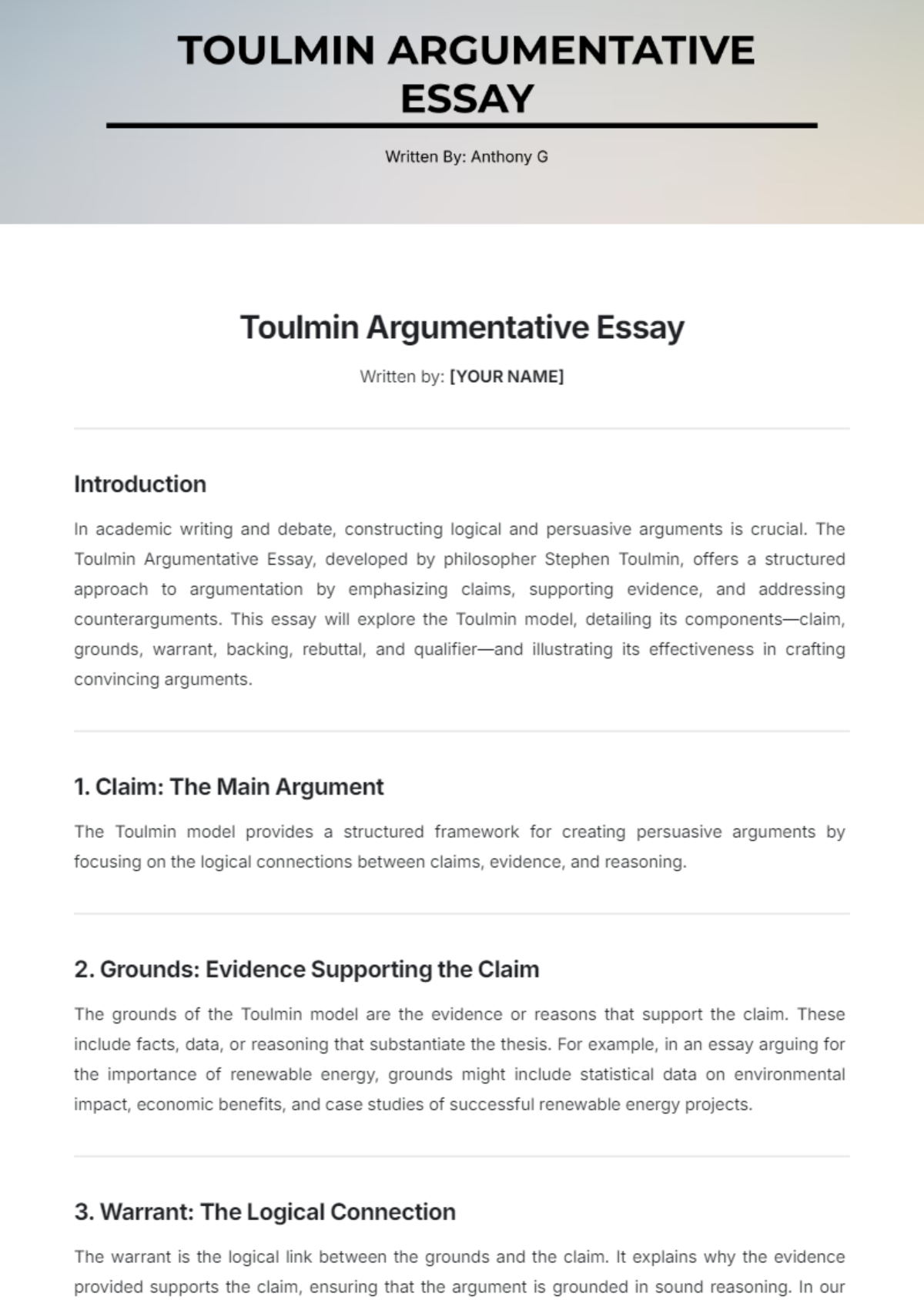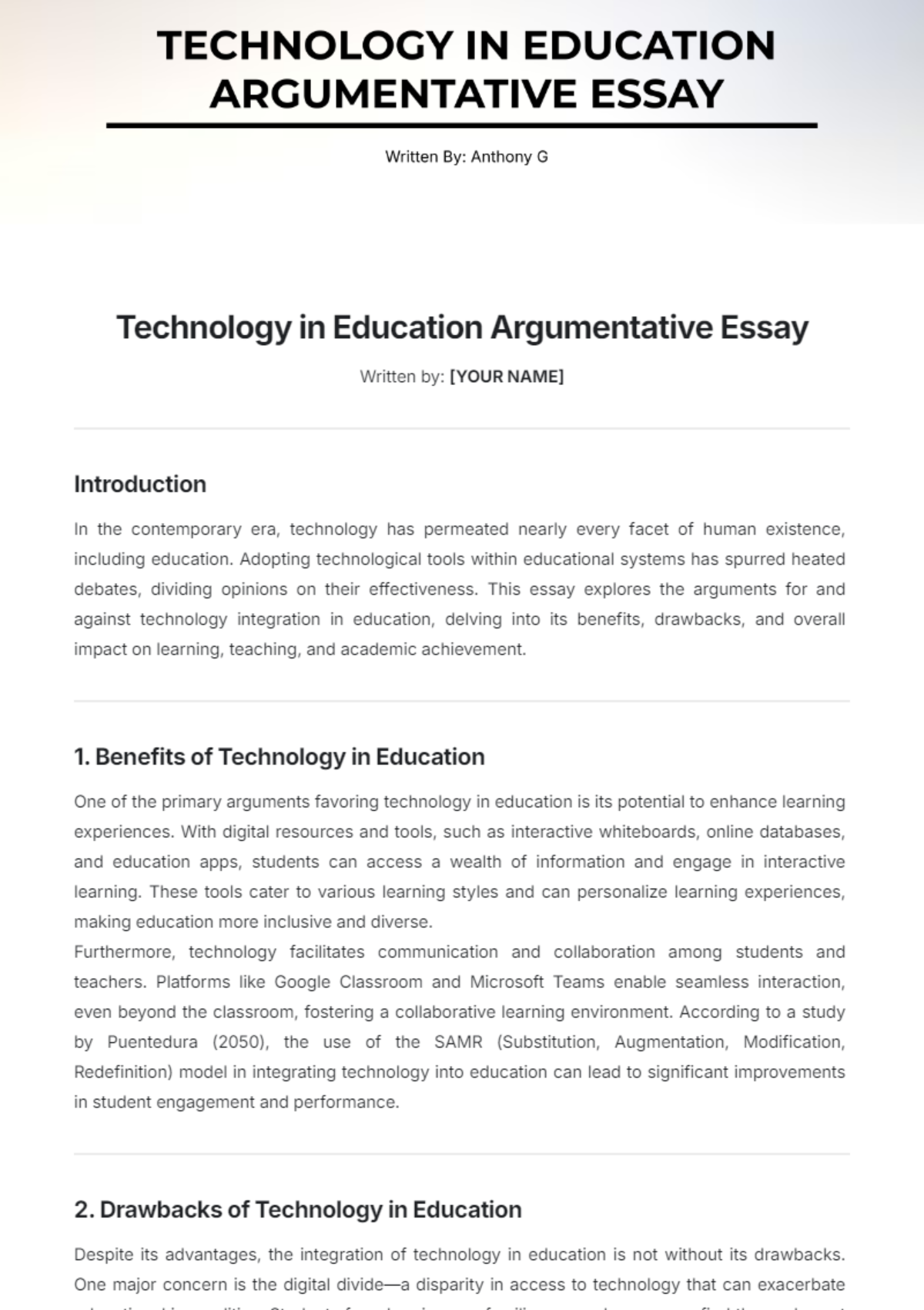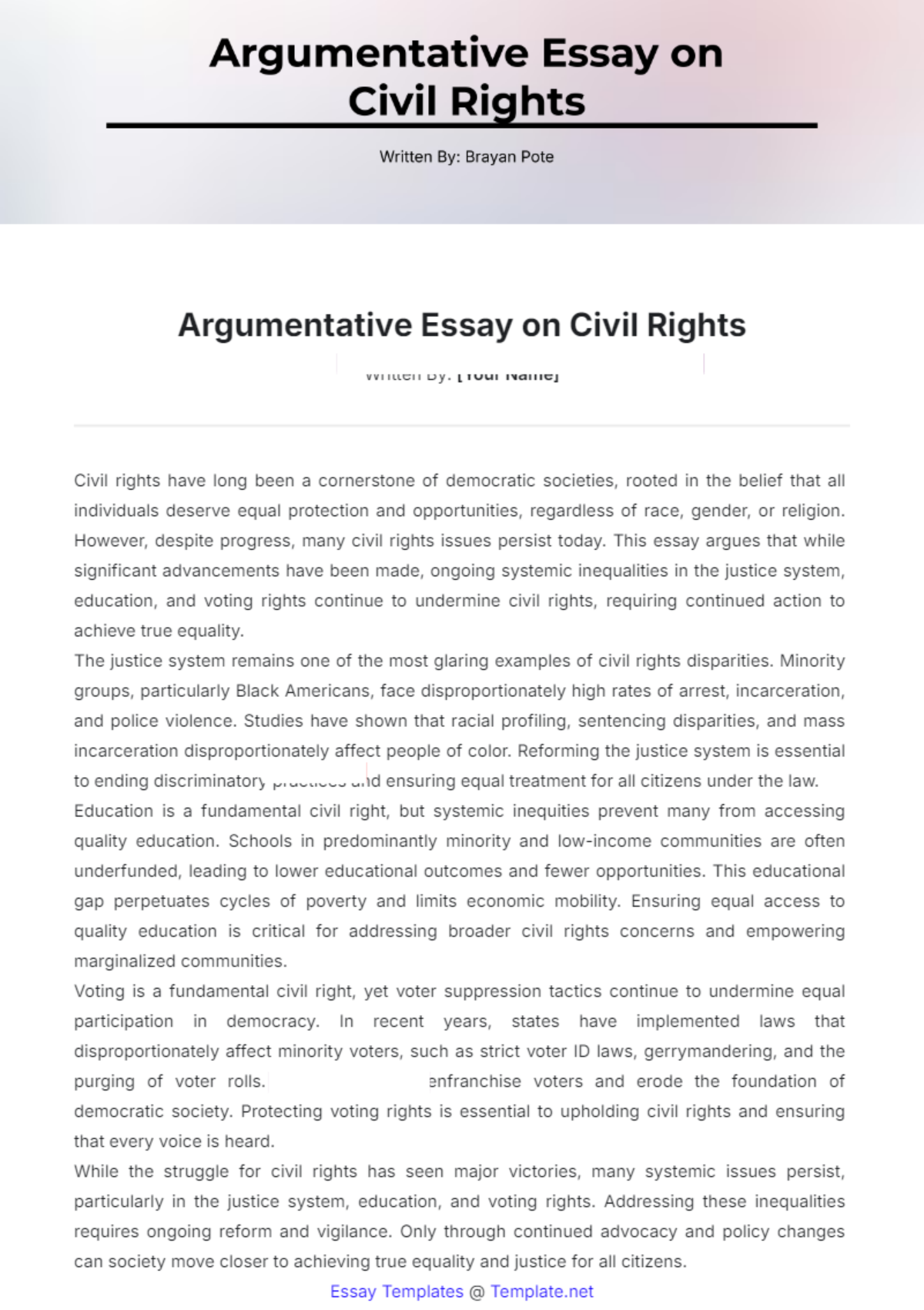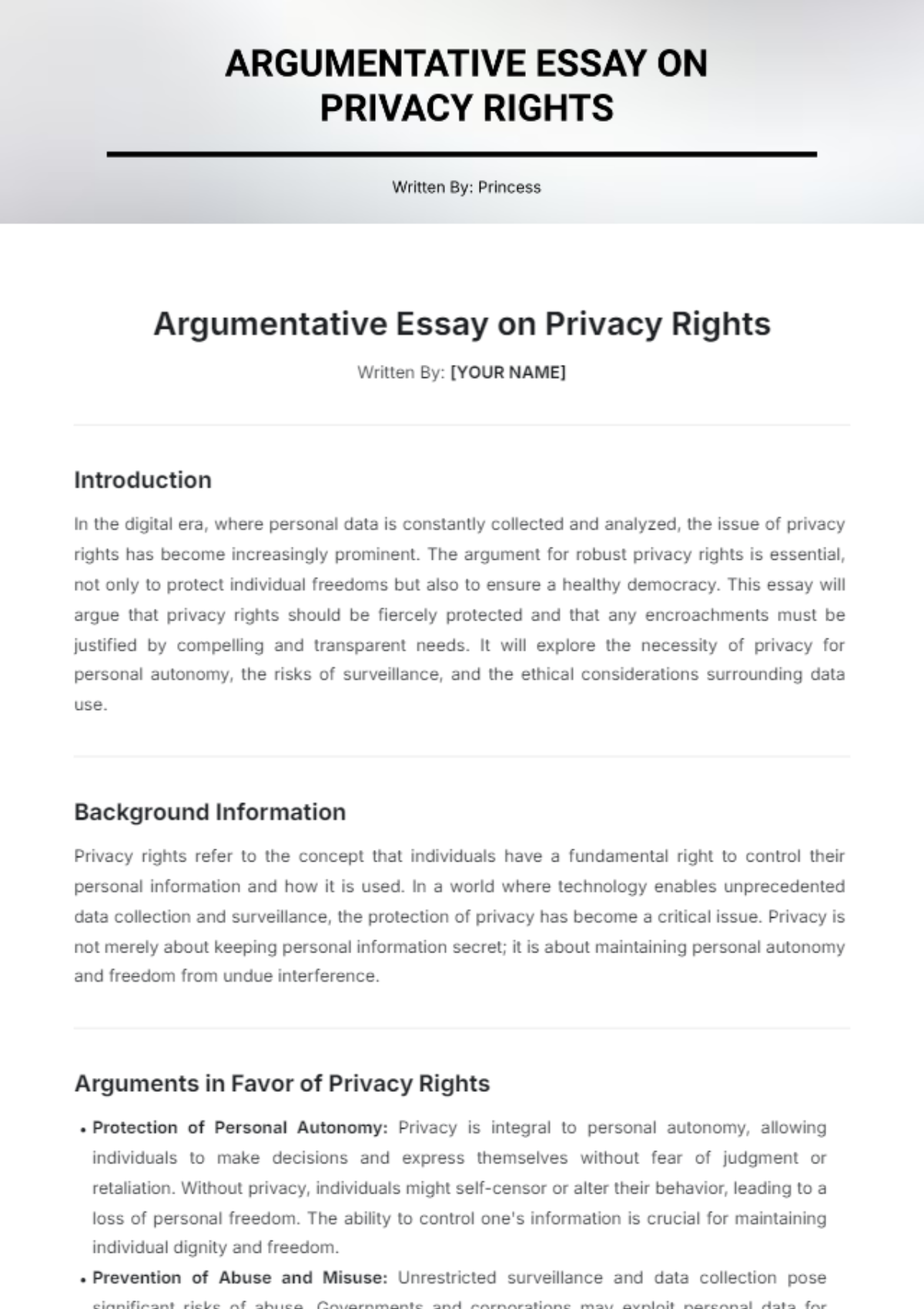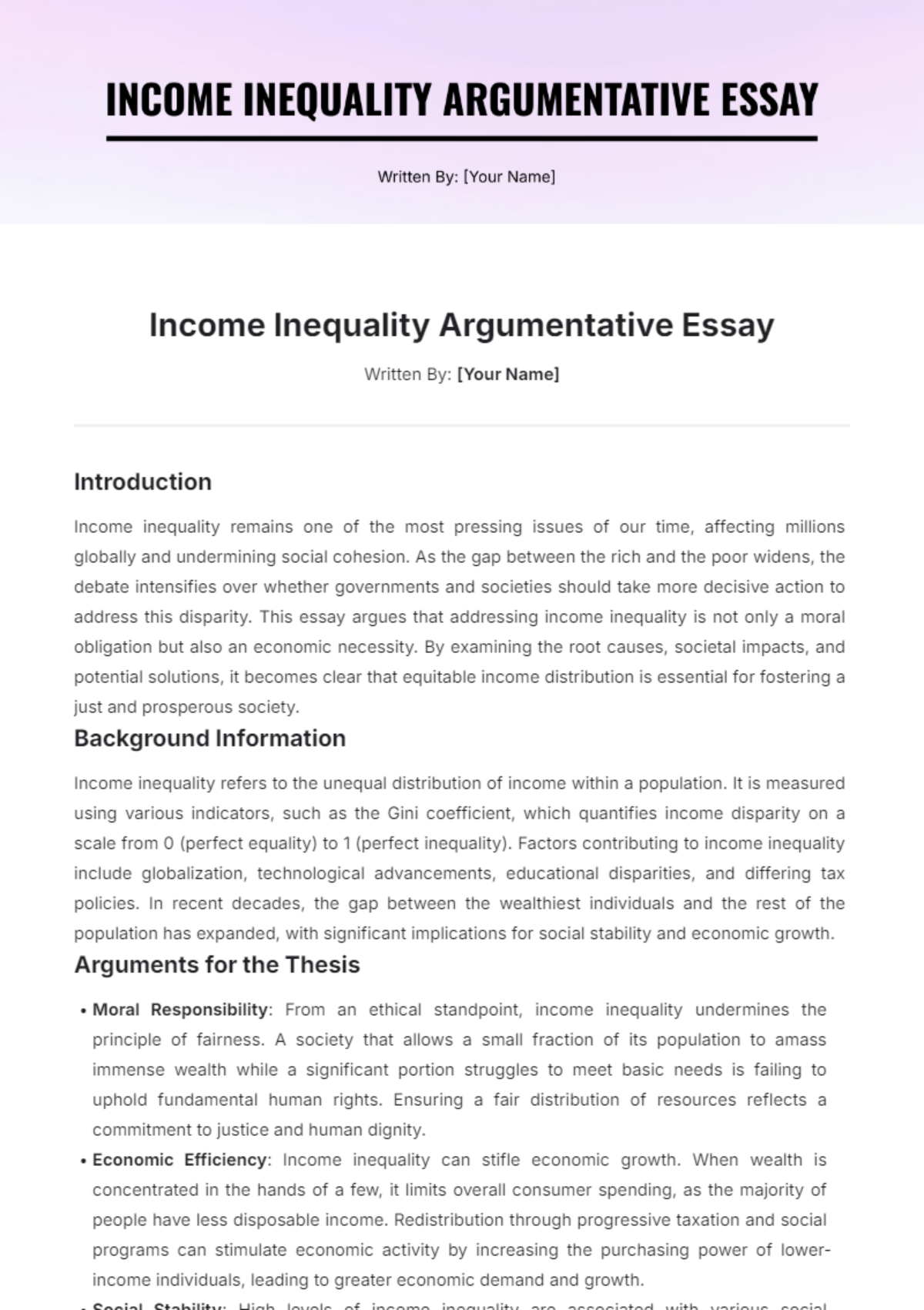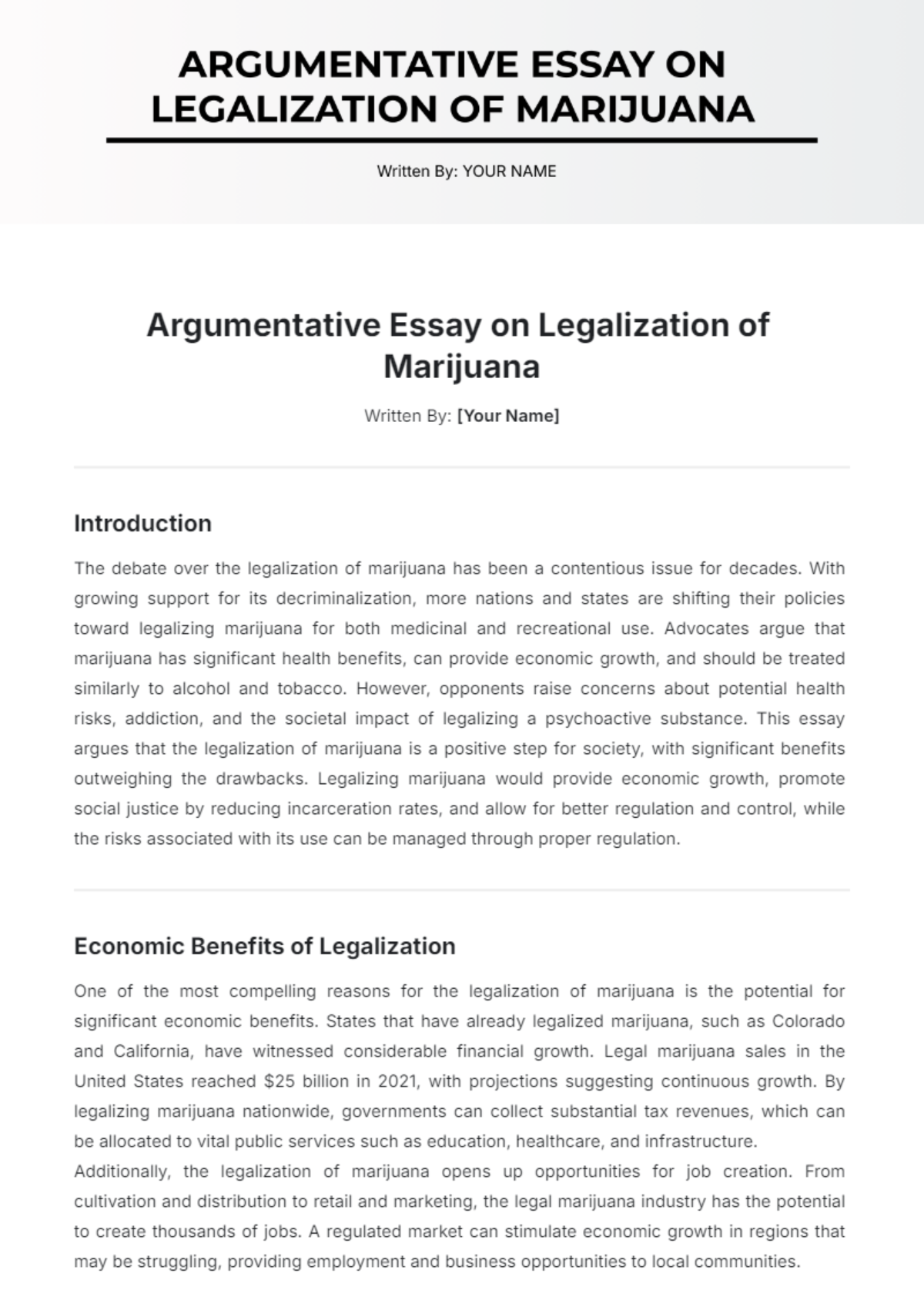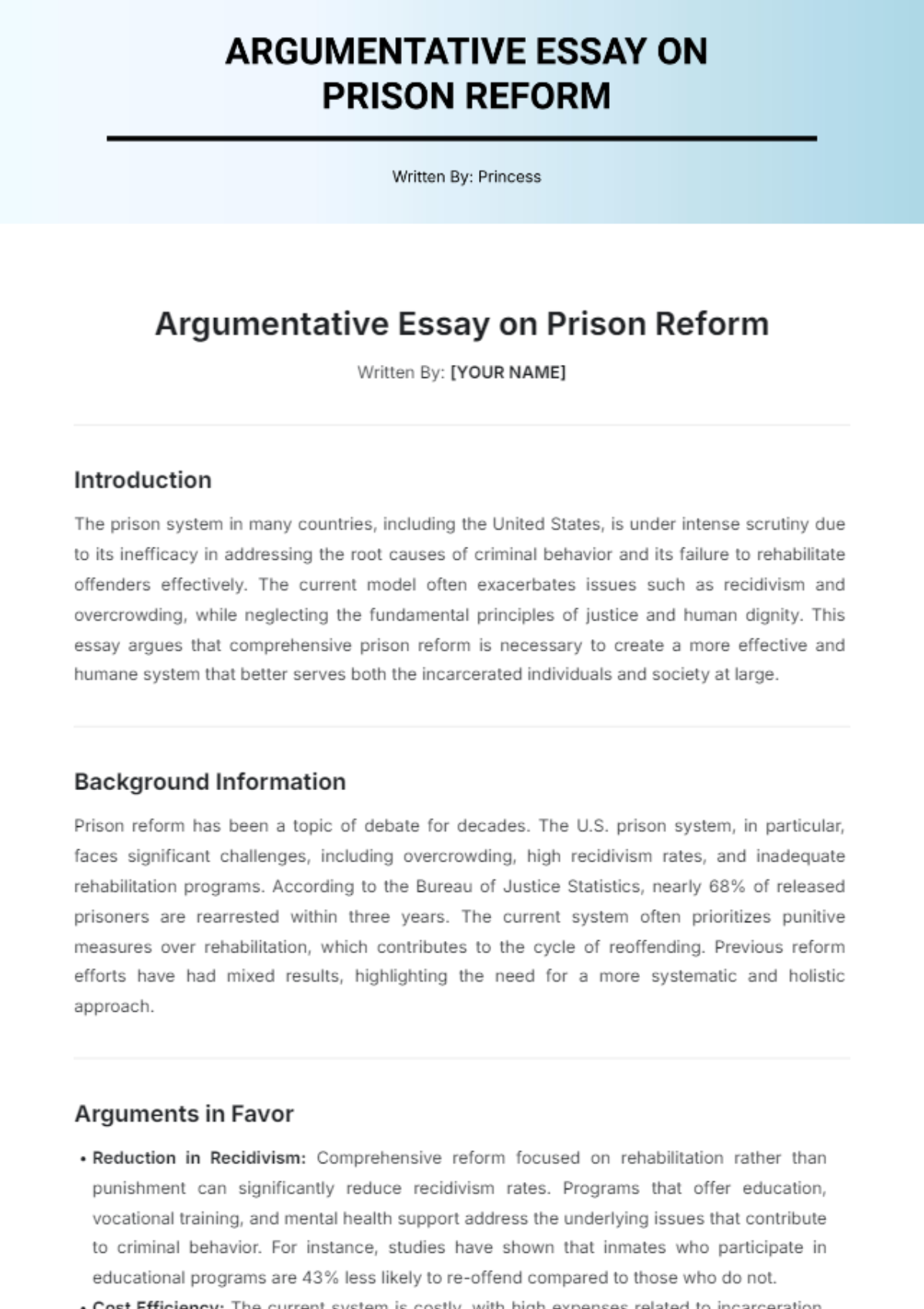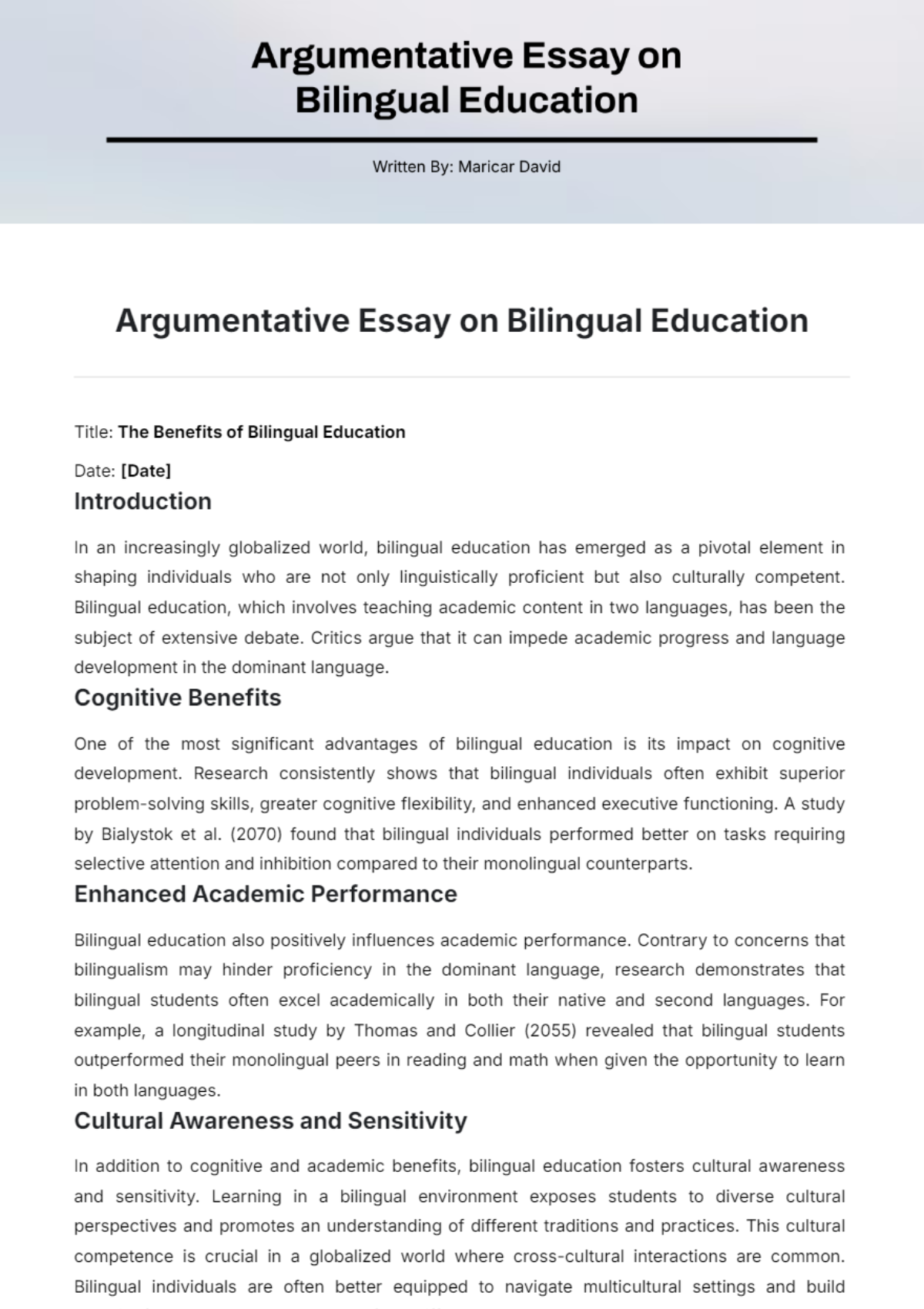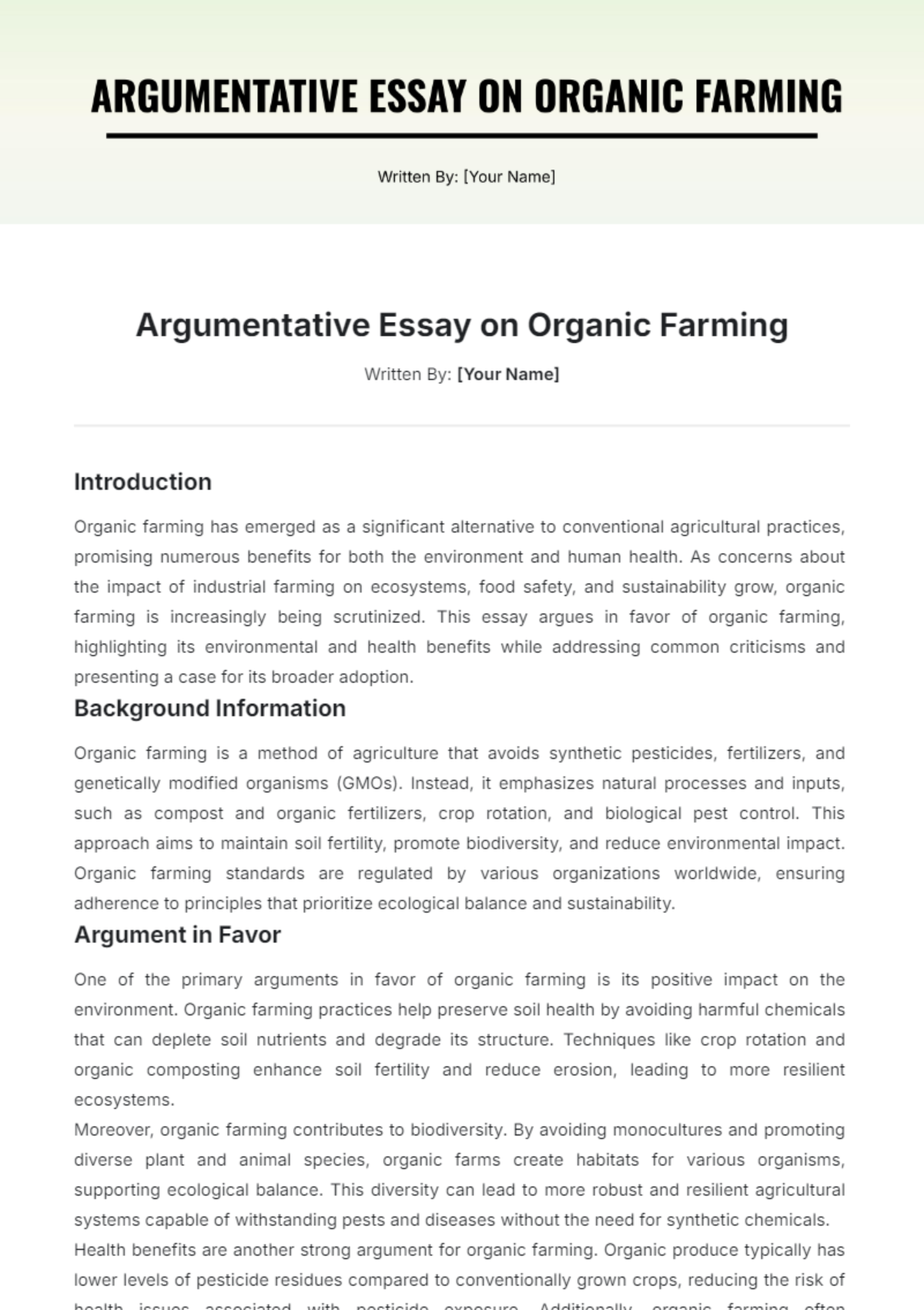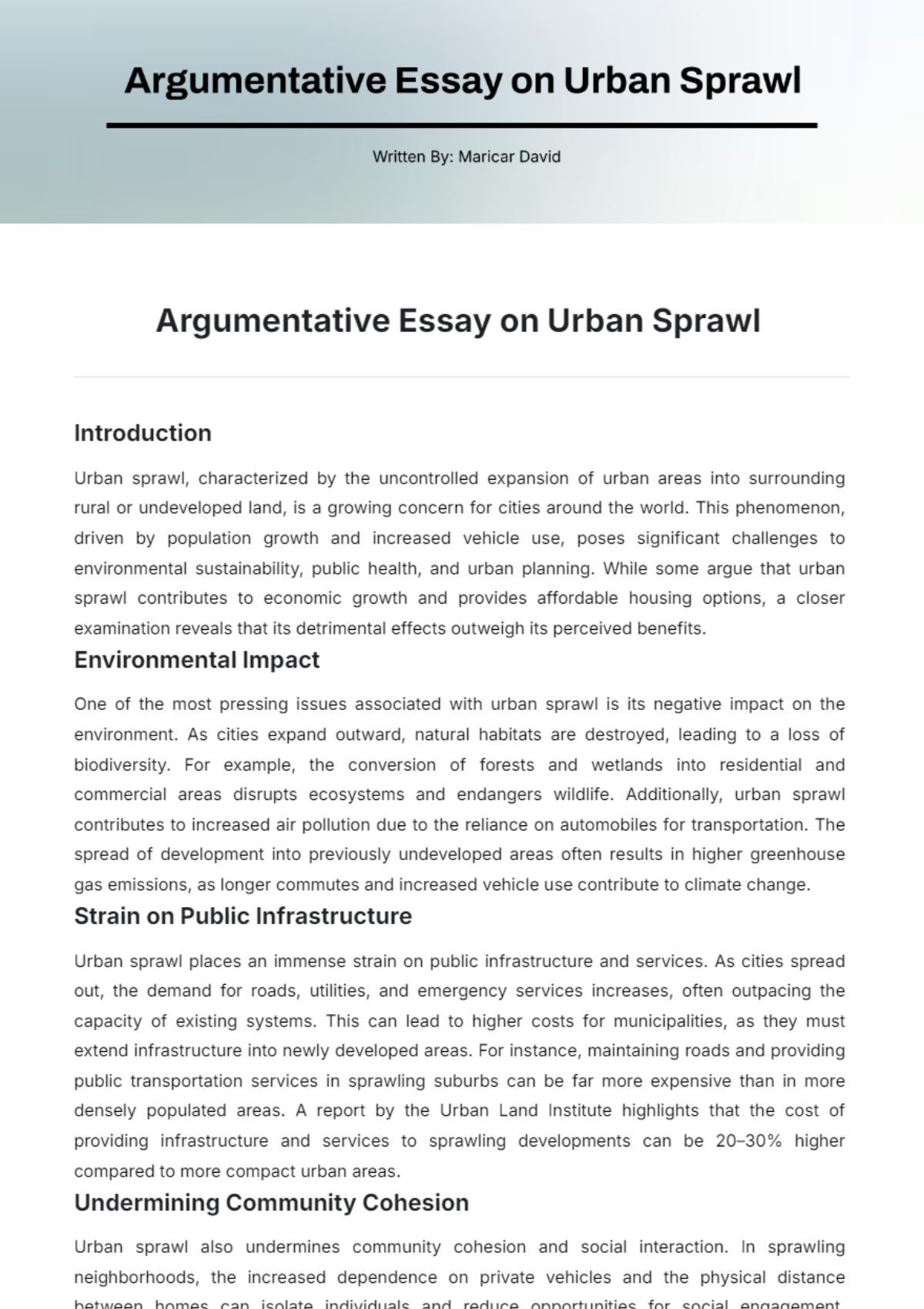Freedom of Speech Argumentative Essay
Written by: [Your Name]
Freedom of speech is a foundational tenet of democratic societies, held up as essential for the exchange of ideas, the pursuit of truth, and the protection of individual liberties. However, the extent to which this freedom should be protected remains a subject of intense debate. Should freedom of speech be upheld without any restrictions, or are certain limitations necessary to ensure the well-being of individuals and society as a whole? This essay argues that while freedom of speech is crucial and should be protected, reasonable limitations are necessary to prevent harm and maintain public order.
The primary argument for unrestricted freedom of speech centers around the concept of individual autonomy and the marketplace of ideas. Free speech allows individuals to express themselves without fear of retribution, fostering personal growth and societal progress. It plays a pivotal role in the pursuit of truth, as open discourse and the exchange of diverse viewpoints are crucial for scientific, moral, and political advancements. In this environment, the best ideas rise to the top through rigorous debate and scrutiny, ultimately benefiting everyone.
However, complete freedom of speech can lead to significant harm and social discord. Unrestricted speech may include hate speech, misinformation, and incitement to violence, all of which can have severe consequences for targeted individuals and the broader community. Hate speech, for instance, can marginalize, intimidate, and incite violence against vulnerable groups, undermining social cohesion and equality. Misinformation, particularly in areas like public health and elections, can lead to dangerous outcomes and erode public trust in critical institutions.
Therefore, reasonable limitations on freedom of speech are necessary to balance the right to express oneself with the need to protect individuals and maintain public order. These limitations must be carefully crafted to avoid undue censorship while preventing speech that directly incites violence or poses a substantial threat to public safety. Legal frameworks, such as those preventing incitement to violence, defamation, and false advertising, aim to strike this delicate balance. Any restrictions must be transparent, consistently applied, and subject to judicial review to prevent abuse of power and protect democratic principles.
Ultimately, safeguarding freedom of speech is essential for fostering individual autonomy and advancing society. However, complete freedom without any restrictions can lead to harm and disorder. Reasonable limitations are necessary to prevent speech that incites violence, spreads misinformation, or perpetuates hate. These limitations, when carefully implemented, can protect individuals and social harmony while preserving the core principles of free expression. Balancing these considerations is essential for maintaining a healthy, democratic society.
